

Travelling or Traveling: What’s the Difference?
Home » Travelling or Traveling: What’s the Difference?
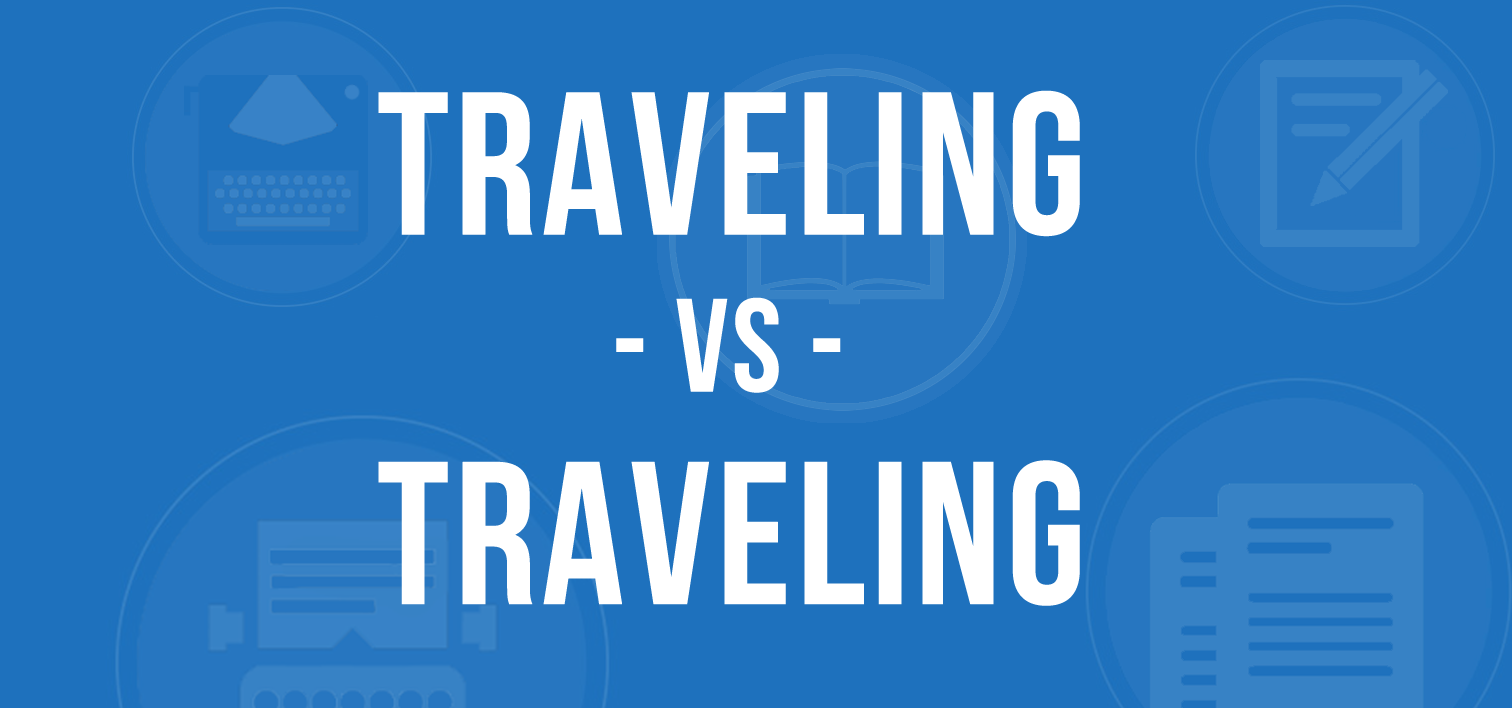
Are you taking a trip anytime soon? If so, where will you be traveling? Or is it travelling? How exactly do you spell this word?
The two words traveling and travelling can cause some confusion for those writers not exactly sure when to use which one. Are they just variations of the same word? Do they have different meanings? Do they function differently in a sentence?
In today’s post, I want to address all of these questions so you will never again wonder or second-guess yourself, “Is it travelling or traveling?”
The Difference Between Travelling and Traveling
Travelling and traveling are both verbs, obviously. To travel is to go from one place to another, as on a trip or journey. For example,

- When the traveling pub is taken off a trailer and put together in a lot near Milwaukee and California avenues, it will boast 400 feet of bar space. – Chicago Sun Times
- They travelled 5,000 miles from Myanmar to place a plaque in Seagrim’s native village of Whissonsett in eastern England. – Washington Post
- Under that analysis, completion of the mobility plan would result in about 35 million miles per day being traveled on L.A. surface streets in 2035. – L.A. Times
You’re probably still thinking, “Okay, I still don’t know how to use these words.”
The difference between traveling vs. travelling isn’t much of a difference at all, really.
In fact, the difference between them is entirely dialectal. There is no demonstrable difference of sense or function, meaning both words can be used interchangeably.
When to Use Travelling
Even though the only thing separating travelling and traveling is a dialectical difference, it is still important to keep your audience in mind when picking which word to use and when.
Travelling (with two Ls) is the preferred spelling in British English and is used much more frequently than is traveling . The graph below shows the use of travelling vs. traveling (as a percentage of all words used) in British English books, journals, and magazines from 1800 to 2008.
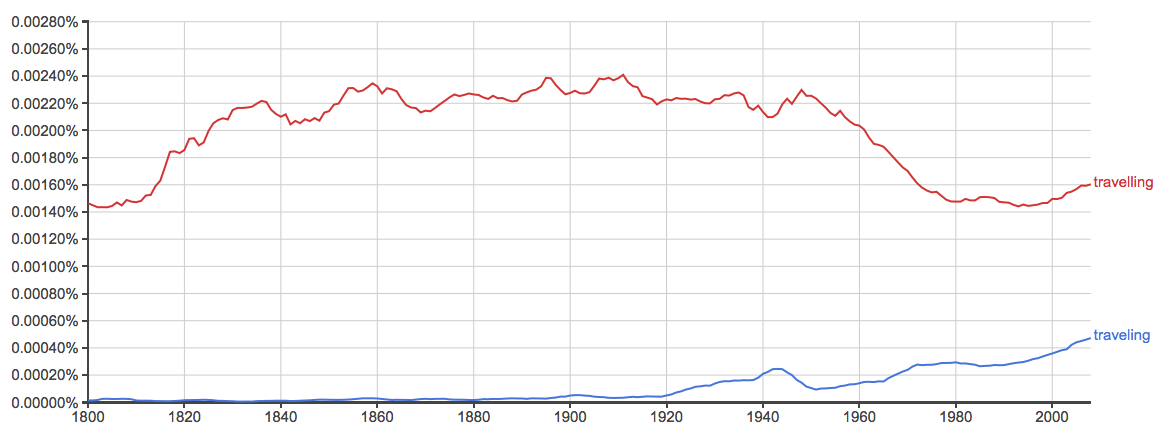
As you can see, travelling (with two Ls) clearly dominates in British English, being used at a rate of about 4:1.
Now, if we look at the same two words over the same time period but limit our search to American print sources, the results completely flip.
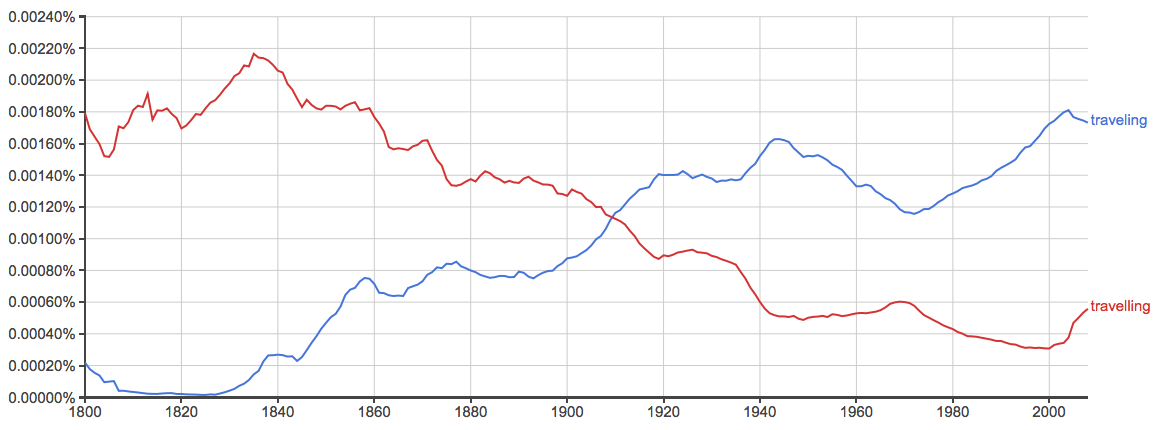
There’s actually a bigger gap between traveling and travelling in American English than there is in British English.
When to Use Traveling
As indicated in the above graph, traveled (with one L) is the preferred spelling in American English.
I’ve discussed the reason for the popularity of many shortened spellings in American English in other posts ( cancelled/canceled comes to mind ), but the basic reason stems back to Noah Webster himself.
He is usually credited with the shortening of many American spellings because in his original 1898 dictionary, he sought to simplify many British spellings he saw as unnecessary. This is where the British-American divide over words like color/colour came from.
Anyway, the point is, if you are writing to an American audience, traveling (with one L) is your best choice.
Remember the Difference – Traveling or Travelling?
One simple way to keep track of these two words is that the shorter spelling is American. If you can keep in mind that, generally speaking, British English favors (favours) the longer spelling of words, you will be able to remember the difference between these words.
It is also worthwhile to note that all of the distinctions in this post apply equally to travelled vs. traveled, traveled vs. travelled, traveller vs. traveler, traveler vs. traveller, etc.
Summary – Traveling vs. Travelling
Is it traveling or travelling? That depends on where you are writing and who is your audience.
- Travelling is the preferred spelling in British English.
- Traveling is the preferred spelling in American English.
Whether you’re talking about travelled or traveled or traveller or traveler, these same preferences still apply.
Grammarflex

“Traveling” or “Travelling” (Which Spelling is Correct?)
- February 12, 2024

Traveling or travelling?
The verb travel , which is to “go from one place to another, especially over a long distance”, uses different spellings based on UK English and US English:
- British English spells “ travelling ” with the double “L”.
- American English spells “ traveling ” with one “L”.
The same goes with other verb forms of “travel” in the past tense i.e., traveled and travelled ; or as a noun, traveler and traveller .
Other words (like traveling or travelling)
Word forms of travel.
Other verb/noun forms also conform to the same spelling rules based on US/UK English:
Sentences with traveling/traveling (present participle)
The travelling / traveling public have had enough of fare increases.
She grew up in a travelling / traveling family.
The birds are travelling / traveling south for the winter.
She enjoys travelling / traveling around Europe.
Sentences with traveled/travelled (past tense)
They travelled / traveled cross-country from New York to California.
The pain travelled / traveled down his back.
They travelled / traveled on the bus to and from work together.
Synonyms of travel
- peregrinate (to travel especially on foot)
Phrases with travel
- travel light
- travel-sick/travel sickness
- travel agent or agency
Origin of the word travel
Etymonline on travel :
Late 14c., “to journey,” from travailen (1300) “to make a journey,” originally “to toil, labor”. Replaced Old English faran . Related: Traveled ; traveling . Traveled (adj.) “having made journeys, experienced in travel” is from early 15c. Traveling salesman is attested from 1885. —Etymonline, travel.
Read more about US English vs. UK English
- Harper, Douglas. “Etymology of humor.” Online Etymology Dictionary, Accessed 12 February, 2024.
- “Peregrinate.” Merriam-Webster.com Dictionary, Merriam-Webster, https://www.merriam-webster.com/dictionary/peregrinate . Accessed 12 Feb. 2024.
Recent Posts

“Beck and Call” or “Beckon Call”? Which is Correct?
Meaning of ‘beck and call’ ‘To be at someone’s beck and call‘ is an idiomatic expression that describes being immediately available or ready to be

What’s the Meaning of the Word “Connotation”?
Ever catch bad vibes from a text? That feeling or internal response you have from the actual words to communicate it, is its connotation; which

What’s the Difference Between Ambiguous & Ambivalent?
Are ambiguous and ambivalent the same? Something ambiguous (an adjective) is unclear, vague and open to different interpretations. To be ambivalent (also an adjective) means

When to Use Have or Had? (Explained with Examples)
When should you use “have” or “had”? When is it correct to use have, has, or had? Phrased differently, what’s the past tense of have?

What’s the Past Participle? (Explanation & Usage)
The past participle is a form of a verb that can appear as an adjective, or be used to form specific tenses and the passive

Emigrate vs. Immigrate (Meaning + Examples)
Meaning of emigrate vs. immigrate To immigrate is the verb form of the noun immigrant; referring to someone that’s moved away from their birth country

Recurring vs. Reoccurring (Correct Usage, + Examples)
Did you have a recurring or reoccurring dream? If you’re finding the difference between these two words befuddling, then this post is for you. How

What’s the Difference Between Nevertheless vs. Nonetheless?
Nevertheless vs. nonetheless Nevertheless and nonetheless are synonyms that both belong to the same part of speech; i.e, they’re compound adverbs that express contrast. There

Assent or Ascent (or Accent?)
When to use assent, ascent and accent The differences between assent, ascent and accent: Assent may be a noun or a verb: the former refers

Traveling vs. Travelling: What’s the Difference?
“Traveling” and “travelling” are both correct. The former is the preferred spelling in American English; the latter is the British spelling. In many places around the world, such as Australia and New Zealand, traditional British English has a stronger influence. As a result, people living in current and former British territories tend to prefer longer spelling variants, such as “colour,” “manoeuvre,” and “aluminium.” Even for words without longer and shorter versions, Americans and Brits sometimes use different letters, as in “pretence” (vs. “pretense”) and “analyse” (vs. “analyze”).
To be fair, many of these British spellings predate the American spellings. The United States adopted simpler variants and shorter spellings based on the work of one man: the lexicographer and linguist Noah Webster. At the turn of the 19th century, he wrote the dictionaries and textbooks that would come to define American usage. As the Encyclopædia Britannica explains, “Webster was instrumental in giving American English a dignity and vitality of its own. Both his speller and dictionary reflected his principle that spelling, grammar, and usage should be based upon the living, spoken language rather than on artificial rules.”
Webster decided that adding a suffix, such as the present participle -ing , should require double consonant spelling when the emphasis is on the last syllable in a multi-syllable word. Because the word “re pel ” has a stronger second syllable, “repelling” has two L s. Words like “travel,” where the emphasis is on the first syllable, should be written with a single consonant.
So, that’s why both spellings work. Thanks to Noah Webster, Americans prefer traveling and South Africans prefer travelling.
Your writing, at its best
Compose bold, clear, mistake-free, writing with Grammarly's AI-powered writing assistant
According to the Online Etymology Dictionary , the word “travel” probably comes from the vulgar Latin word tripaliare, “to torture.” That tells you how much people enjoyed journeys back in those days! By the 12th century, Old French adopted the word travail, meaning “work, labor, toil” or “arduous journey.” Use of the verb travailen in English dates back to 1300, and the spelling “travel” began appearing later that century.
In Shakespeare’s Macbeth , which likely dates from around 1606, we can see the line, “And yet darke Night strangles the trauailing Lampe.” In this example, we can see both the – ai- spelling variant and the use of the letter U for V sounds, which was common in the middle of a word.
The second edition of John Milton’s Paradise Lost (1674) exhibits a spelling variant closer to the modern form of “travelled”:
And long he wanderd, till at last a gleame
Of dawning light turnd thither-ward in haste
His travell’d steps;
From these works, we can see that both the single L and double L spelling have historical precedents.
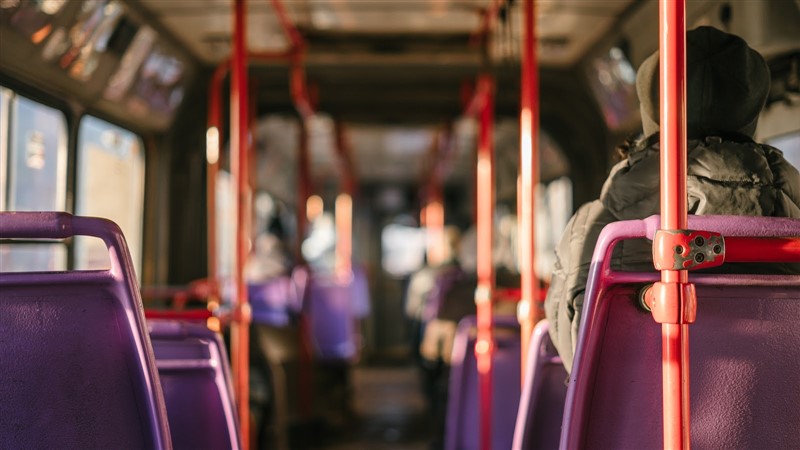
Definitions
Merriam-Webster defines the word “traveling” as an adjective and lists “travelling” as a variant spelling.
The dictionary provides the following meanings:
- going to different places instead of staying in one place
- carried by, used by, or accompanying a traveler
Traveling can also be a conjugation of the verb “to travel.” Merriam-Webster defines travel as, “to go on or as if on a trip or tour” and “to move or undergo transmission from one place to another,” among other definitions.
According to Thesaurus.com , synonyms for traveling include:
Other Words and Phrases
A “traveler’s check” is a preprinted check, used in the place of cash, intended to protect international travelers from theft. The Online Etymology Dictionary explains that the term originated in 1891.
A “travel-agent” or “travel agent” is a person or company employed to make travel arrangements. Although the term originated in 1925, the first travel agents ( Cox & Kings ) predated the moniker by over 150 years.
U.S. traveler Burton Holmes invented the word “travelogue” by combining the word “travel” and the Greek suffix – logue. A travelogue describes a piece of writing, a lecture, or a film about travel.
“Taking the path less traveled” is an idiom used to describe an uncommon choice. The phrase comes from the Robert Frost poem, “ The Road Not Taken ,” which contains the lines: “Two roads diverged in a wood, and I— / I took the one less traveled by.”
“Traveling light” is an idiom referring to someone who travels without much luggage. The phrase can also be used in a figurative sense to describe someone without ties or responsibilities.
The Words in Context
“…Experts say that traveling by car may be the safest option in a pandemic — but road trips still come with risks.” — The Washington Post , “Hitting the Road? Here’s What to Know…”
“An expanding list of Canadian politicians are in hot water after being caught vacationing or travelling abroad amid a worsening COVID-19 pandemic at home.” — CTV News , “Growing List of Canadian Politicians …”
“New York City has introduced quarantine rules for international travellers following emergence of new Covid variants in countries like the UK.” — BBC News , “Coronavirus: New York City Orders International Visitors…”
“Belize is the only English-language-official country in Central America. As a popular tourist destination, English is spoken by everyone, and many prices are listed in U.S. Dollars (the Belize dollar is tied to the U.S. Dollar with a fixed exchange rate), making it a comfortable destination for first-time international travelers.” — USA Today , “Did you know? English is the Official…”
- https://www.etymonline.com/word/travail
- https://www.etymonline.com/search?q=travel
- https://www.merriam-webster.com/dictionary/traveling
- https://www.merriam-webster.com/dictionary/travel
- https://www.thesaurus.com/browse/traveling?s=t
- https://www.poetryfoundation.org/poems/44272/the-road-not-taken
- https://www.washingtonpost.com/travel/tips/road-trip-rest-stop-covid/
- https://www.ctvnews.ca/politics/growing-list-of-canadian-politicians-caught-travelling-abroad-despite-pandemic-1.5251039
- https://www.usatoday.com/story/travel/destinations/2020/02/03/english-official-language-these-five-countries/4556924002/
- https://www.bbc.com/news/world-us-canada-55432977

Kari Lisa Johnson
I’m an award-winning playwright with a penchant for wordplay. After earning a perfect score on the Writing SAT, I worked my way through Brown University by moonlighting as a Kaplan Test Prep tutor. I received a BA with honors in Literary Arts (Playwriting)—which gave me the opportunity to study under Pulitzer Prize-winner Paula Vogel. In my previous roles as new media producer with Rosetta Stone, director of marketing for global ventures with The Juilliard School, and vice president of digital strategy with Up & Coming Media, I helped develop the voice for international brands. From my home office in Maui, Hawaii, I currently work on freelance and ghostwriting projects.
Recent Posts

Allude vs. Elude?

Bad vs. badly?

Labor vs. labour?

Adaptor vs. adapter?

'Travelling' or 'Traveling': What's the Difference Between the Two?

'Travelling' or 'Traveling': two different ways to spell the same word. But which one is correct? The answer is actually pretty simple. Read on to find out.
In short, 'travelling' is the British English spelling, and 'traveling' is the American English spelling.
The Difference Between 'Travelling' or 'Traveling'
Firstly, let's define 'traveling'. Although I'm sure you're familiar with this word, I want to make sure we've covered all our bases. 'Traveling' is the participle tense of the verb 'to travel.' To travel is to take a journey somewhere, sometimes for the purposes of a holiday, other times it might be for a work trip or to visit family.
Back in 1828, Noah Webster, an American lexicographer, published his famous dictionary, "An American Dictionary of the English Language," hoping to standardize American speech. The man was famous for preferring words to be written the way they sounded. That makes sense, right?
So he spent many years editing the spellings of words that came from British English in order to make them look more like they sound. One of the many changes he made was to remove extra letters where he deemed them to be unnecessary. 'Traveling,' 'traveler,' and 'traveled' were among those. Some other words where the spelling was cut short include:
These words all have alternative spellings in British English that are either longer or don't look exactly as the word is pronounced. Take 'mom,' for instance. The Brits spell it 'mum,' which is pretty close to how you pronounce the word, but the spelling with the 'o' is closer to the American accent.
Remember the Difference - 'Traveling' or 'Travelling'?
As a result of his editing, Mr. Webster cut out a lot of unnecessary 'l's. But not all of them. In words where the pronunciation emphasis is on the syllable with the 'l,' two 'l's remain. For example:
- controlling
But do you want to know the simplest way to know which spelling the American one is? When looking at the two same words with different spellings, the American one is usually the shorter one. It's true! Let's look at earlier examples as evidence of this:
- American spelling: color British spelling: colour
- American spelling: canceled British spelling: cancelled
- American spelling: totaled British spelling: totalled
And while this logic doesn't apply to the examples 'center' and 'mom', the logic of spelling the word as it's pronounced does.
Therefore, whether to use 'traveling' or 'travelling' depends on your audience. Are you writing for an American audience? Then use 'traveling.' Are you writing for a British or other Commonwealth audience (Canada, Australia...)? Use 'travelling.'
'Traveling' and 'Travelling': Examples
Now that we're clear on the meaning of the word and which spelling to use when it's time to look at some examples of the word used in a sentence. I'll only use the spelling 'traveling,' but bear in mind that both spellings are interchangeable. I'll also cite some examples that use 'traveled' and 'traveler.'
I haven't seen him in ages; he's been traveling since last year. Last year we traveled to Costa Rica for our honeymoon. A true traveler never arrives. Traveling is one of my favorite pastimes. Have you ever traveled solo? I met a bunch of travelers last night; they're touring Central America.
Concluding Thoughts on 'Traveling'
So there you have it. The difference between 'traveling' and 'travelling' is simply based on where you are based or where your audience is based. Other than that, they mean the exact same thing. So don't sweat it if you're unsure which to use; in any case, both are acceptable. But a good way to remember is that the American spelling is usually the shorter one.
To learn about more confusing words , including American vs. British words, visit our blog . We've covered many commonly misspelled and misunderstood words and will continue to cover many more!
Learn More:
- ‘Center' or 'Centre': What's the Difference?
- 'Tonne' vs 'Ton': What's the Difference Between the Two?
- 'Pass Time' or 'Pastime': What's the Difference Between the Two?
- 'Spoilt' vs 'Spoiled': What's the Difference Between the Two?
- 'Practise' or 'Practice': What's the Difference Between the Two?
- ‘Enquiry' vs 'Inquiry': What's the Difference?
- ‘Aeroplane' vs 'Airplane': What's the Difference?
- 'Autumn' vs 'Fall' What's the Difference?
- 'Cancelled' vs 'Canceled': Which is Correct?
- 'By Jove': Meaning, Definition, Origin
- ‘Loss' vs 'Lost': What's the Difference Between the Two?
- ‘Truly' or 'Truely': What's the Difference Between the Two?
- 'Spelt' or 'Spelled': What's the Difference Between the Two?
- ‘Pyjamas' or 'Pajamas': What's the Difference Between the Two?
- ‘Theatre' vs 'Theater': What's the Difference Between the Two?
We encourage you to share this article on Twitter and Facebook . Just click those two links - you'll see why.
It's important to share the news to spread the truth. Most people won't.
Add new comment Cancel reply
Your email address will not be published. Required fields are marked *
Save my name, email, and website in this browser for the next time I comment.
Post Comment

Have a language expert improve your writing
Run a free plagiarism check in 10 minutes, automatically generate references for free.
- Knowledge Base
- UK vs US English
- Travelling or Traveling | Difference & Example Sentences
Travelling or Traveling | Difference & Example Sentences
Published on 11 August 2022 by Eoghan Ryan . Revised on 6 February 2023.
Travelling and traveling are two different spellings of the present participle of the verb ‘travel’ (and the identical gerund ) meaning ‘move from one place to another’ (typically over a long distance). The spelling tends to vary based on whether you’re writing UK or US English :
- In UK English , ‘travelling’ (double ‘l’) is standard.
- In US English , ‘traveling’ (one ‘l’) is correct.
If you’re travelling / traveling through Central Europe, you should visit Berlin.
Karen likes travelling / traveling by train because she enjoys watching the landscape go by.
Instantly correct all language mistakes in your text
Be assured that you'll submit flawless writing. Upload your document to correct all your mistakes.

Table of contents
‘travelling’ and ‘traveling’ as adjectives, ‘travelled’ or ‘traveled’, other interesting language articles.
Travelling and traveling can also be used as adjectives to describe someone or something that moves from place to place.
The only proofreading tool specialized in correcting academic writing
The academic proofreading tool has been trained on 1000s of academic texts and by native English editors. Making it the most accurate and reliable proofreading tool for students.

Correct my document today
Travelled and traveled are the past forms of the verb ‘travel’. The same spelling distinction applies to these past forms and to the nouns traveller and traveler :
- In UK English , ‘travelled’ and ‘traveller’ are standard.
- In US English , ‘traveled’ and ‘traveler’ are more common.
If you want to know more about commonly confused words , definitions , and differences between US and UK spellings , make sure to check out some of our other language articles with explanations, examples, and quizzes.
Confused words
- Affect vs effect
- Further vs farther
- Loose vs lose
- Whose vs who’s
Definitions
- Bear with me
- Presumptuous
US vs. UK spellings
- Canceled or cancelled
- Dreamt or dreamed
- Gray or grey
- Learnt vs learned
- Theater vs theatre
Cite this Scribbr article
If you want to cite this source, you can copy and paste the citation or click the ‘Cite this Scribbr article’ button to automatically add the citation to our free Reference Generator.
Ryan, E. (2023, February 06). Travelling or Traveling | Difference & Example Sentences. Scribbr. Retrieved 22 April 2024, from https://www.scribbr.co.uk/uk-vs-us/traveling-or-travelling/
Is this article helpful?

Eoghan Ryan
Other students also liked, cancelled or canceled | difference & examples, defence or defense | difference & example sentences, learnt or learned | difference & example sentences.
Traveling or Travelling – Which Is Correct?
Marcus Froland
March 28, 2024
Ever found yourself pausing mid-sentence, pen hovering over the page or fingers stalled on the keyboard, wondering if it’s “traveling” or “travelling”? You’re not alone. This common conundrum trips up many of us, sowing seeds of doubt every time we try to jot down our adventures or share tales of our journeys. It’s a tiny difference, just one letter, but it holds the power to make us second-guess ourselves.
The truth is, both spellings are correct — but there’s a catch. The choice between them isn’t as arbitrary as it might seem; it hinges on something you might not have considered. And no, we’re not going to spill the beans just yet. By the end of this article, you’ll not only know which spelling to use when but also understand why it matters more than you might think.
When it comes to writing the word for moving from one place to another, both “traveling” and “travelling” are correct. The difference lies in where you are or who your audience is. In the United States , people prefer to use one ‘l’, making it “traveling”. However, in countries like the United Kingdom, Canada, and Australia , adding an extra ‘l’ is the norm, so it’s “travelling”. This variation is because of different spelling rules in American and British English. So, next time you write about your adventures, remember to consider who will be reading it. If your readers are mainly from the U.S., go with “traveling”. If they’re from other English-speaking parts of the world, “travelling” might be more appropriate.
The American and British Spelling Dilemma
The unique paths of language development and educational standards in the United States and the United Kingdom contribute to the spelling variations witnessed in American vs. British English . One such example is the difference in spelling of the word “traveling” in American English and “travelling” in British English. While these discrepancies might appear minor, they play a significant role in the localization of written content and reflect the cultural influences in each variant of the English language.
At the heart of the American and British spelling dilemma is the influence of Noah Webster, an American lexicographer, grammarian, and language reformer who advocated for a simplified spelling system that distinguishes American English from British English. His efforts resulted in several modifications, including changes to the way “traveling/travelling” and related words are spelled.
Let’s take a closer look at the spelling differences between American and British English:
These spelling variations can be attributed to the language discrepancies , which impact not only the spelling of individual words but also the English spelling rules that govern written communication in both American and British English.
“As an American, I may spell the word ‘traveling’ with a single ‘l,’ but my friends from the United Kingdom insist on using the double ‘l’ spelling of ‘travelling.’ It’s fascinating to see the impact of cultural and historical factors on our language usage.”
To understand and appreciate the diverse nature of the English language and its spelling conventions , it’s essential to explore the factors that contributed to the divergence between American and British English. By familiarizing yourself with these variations, you can better cater your written content to different audiences and ensure the appropriate use of language.
Understanding the Spelling Discrepancy: A Historical Perspective
The spelling discrepancy between “traveling” and “travelling” has its roots in the English language history and the linguistic evolution that occurred as American and British English took different paths. Noah Webster, a renowned American lexicographer, greatly influenced the development of American English spelling conventions with his advocacy for spelling reform.
Some of these reforms included reducing double consonants to a single consonant in certain words, such as changing “travelling” to “traveling,” in an effort to simplify and differentiate American English from its British counterpart. This linguistic change had a lasting impact on the spelling of numerous words in American English, including “traveler” instead of “traveller” and “canceled” instead of “cancelled.”
“Language is the expression of ideas, and if the people of one country cannot preserve an identity of ideas, they cannot retain an identity of language.”
Noah Webster
In addition to simplifying spellings, Webster sought to create a distinct American linguistic identity that would set it apart from British English. His dictionary, An American Dictionary of the English Language , was published in 1828 and became a standard reference for American English.
- Historical Influences : American and British English evolved differently due to geopolitical factors, such as political separation and cultural influences.
- Spelling Reforms : Noah Webster sought to differentiate and simplify American English spellings, including changing double consonants to a single consonant, e.g., “travelling” to “traveling.”
- Webster’s Dictionaries : Webster’s dictionary publications helped spread his spelling ideologies, playing a crucial role in shaping American English spelling conventions .
By understanding the historical underpinnings and the reasons behind spelling discrepancies like “traveling” versus “travelling,” writers can make informed decisions on which spelling to use based on their audience and the regional linguistic preferences. The legacy of Noah Webster’s influence on American English continues to thrive, as seen in the American English spelling conventions employed today.
The Grammar Behind “Traveling” and “Travelling”
Understanding the difference between American and British English spelling conventions when it comes to multisyllabic words like “traveling” and “travelling” is essential for writers across the globe. In this section, we will dive into the grammar rules that determine final consonant doubling , stress pattern rules , and suffix addition rules in both American and British English.
When to Double the Final Consonant in American English
In American English, the general rule for doubling the final consonant when adding a suffix depends on whether the ending syllable is stressed or not. If the final syllable of a word is stressed and it ends in a vowel followed by a consonant, the consonant is usually doubled. However, since the stress in “travel” is on the first syllable, the ‘l’ is not doubled when adding a suffix. This results in the American English spelling “traveling.”
The Rule of Thumb for Multisyllabic Words
In both American and British English, the stress pattern of a multisyllabic word can determine the spelling when suffixes are added. For words like “travel,” where the stress is on the first syllable, American English does not double the ‘l’, while British English often doubles the ‘l’, resulting in the spelling “travelling”.
In many multisyllabic words , the stressed syllable can determine the final consonant doubling when suffixes are added.
Applying the Correct Suffix in American vs. British English
Whether to apply one ‘l’ or two when adding suffixes to “travel” depends on the variant of English being used. The American English convention follows the rule of non-doubling for non-stressed ending syllables, favoring “traveling” over “travelling,” which is prevalent in British English. This difference in suffix application is an essential aspect of dialect-specific spelling conventions.
By understanding the grammar rules behind final consonant doubling , stress pattern rules , and suffix addition rules , you can ensure that your writing aligns with the correct spelling conventions, whether working with American or British English.
Geographical Spelling Preferences for “Traveling”
The spelling of “traveling” and “travelling” varies considerably based on the geographical region, resulting in regional spelling differences and local language preferences . To put it simply, “traveling” with one ‘l’ is predominantly used in American English, whereas “travelling” with double ‘l’s is generally preferred in the UK, Commonwealth countries, and other parts of the world influenced by British English norms.
It’s crucial to comprehend these geographical linguistic variations in order to communicate effectively and respectfully with diverse audiences. Using the appropriate spelling for each regional audience can help establish a connection with readers and prevent misunderstandings or misconceptions. To give you a clearer understanding, let’s explore the different variations of “traveling” or “travelling” and their respective geographical preferences.
As you can see, the geographical location of your audience plays a key role in determining which spelling variation to use. In the age of globalization, it is up to you to be mindful of these regional spelling preferences and adapt your writing accordingly to create a clear, consistent, and engaging message for your readers.
Becoming aware of regional spelling differences , local language preferences , and geographical linguistic variations is essential for effective communication and achieving success in the world of writing.
“Traveling” or “Travelling” in Professional Writing
In professional writing, maintaining consistency in language use across different English-speaking countries is crucial. Whether you spell it “traveling” or “travelling” depends on the target audience and their regional language preferences. For example, American English speakers will expect “traveling,” whereas an audience in the UK and other parts of the world influenced by British English will be more accustomed to “travelling.”
Consistency in Language Use Across Different English-Speaking Countries
Maintaining consistency in spelling and grammar is essential in ensuring that your writing is polished and professional. Being aware of international English variations enables you to adapt your writing style to various audiences. To demonstrate the importance of adapting to different language preferences, consider the following table:
As showcased in the table, spelling variations differ across various English-speaking countries. As a writer, it’s crucial to be aware of these differences and tailor your content to suit your audience’s expectations.
Adapting Your Spelling to the Audience
Audience-oriented writing and writing localization are both important factors for success in professional writing. By adapting your spelling and language use to your target audience’s regional preferences, you can better establish credibility and avoid potential confusion. Your readers will appreciate the effort you put forth to ensure your writing is clear and relatable to their own linguistic background.
“The difference between the right word and the almost right word is the difference between lightning and a lightning bug.” – Mark Twain
When submitting work for an international audience, consider the spelling variations and regional language preferences they might have. For instance, a US-based writer submitting work in Australia should opt for “travelling,” aligning with the British English preference, to ensure that the writing resonates well with the local audience.
Staying aware of regional language preferences and maintaining consistency in your writing is essential for successful professional communication. Adapting your spelling to different audiences not only prevents confusion but also demonstrates your attentiveness and dedication to providing tailored content .
Common Usage in Journalism and Literature
In the world of journalism and literature, spelling standards and linguistic preferences play a crucial role in effectively communicating with your target audience. American publications such as The New York Times and Condé Nast Traveler typically use “traveling” with one ‘l’, in line with American English conventions.
On the other hand, British outlets like The Guardian and Bristol Post adhere to British English norms, using “travelling” with two ‘l’s. As a writer, it is essential to be well-versed in these spelling conventions to maintain credibility and fluency in your works. This applies regardless of whether you are writing articles, essays, press releases, or even blog posts.
Understanding the linguistic preferences of your intended audience and tweaking your writing accordingly is not only a sign of cultural awareness but also a mark of professionalism. So, to make a lasting impression and connect with your readers on a deeper level, always pay close attention to the regional spelling differences in words like “traveling” and “travelling” across various media platforms.
Share this:
Two minute english.
English Made Simple: Two-Minute Lessons for Busy Learners
Copyright © 2024 • TwoMinEnglish.com

Traveling or Travelling? Which is Correct Spelling?! Learn Here…
By: Author Lillie Marshall
Posted on Published: January 25, 2020 - Last updated: January 11, 2023
Is it Traveled or Travelled ?
Traveler or traveller , traveling or travelling .
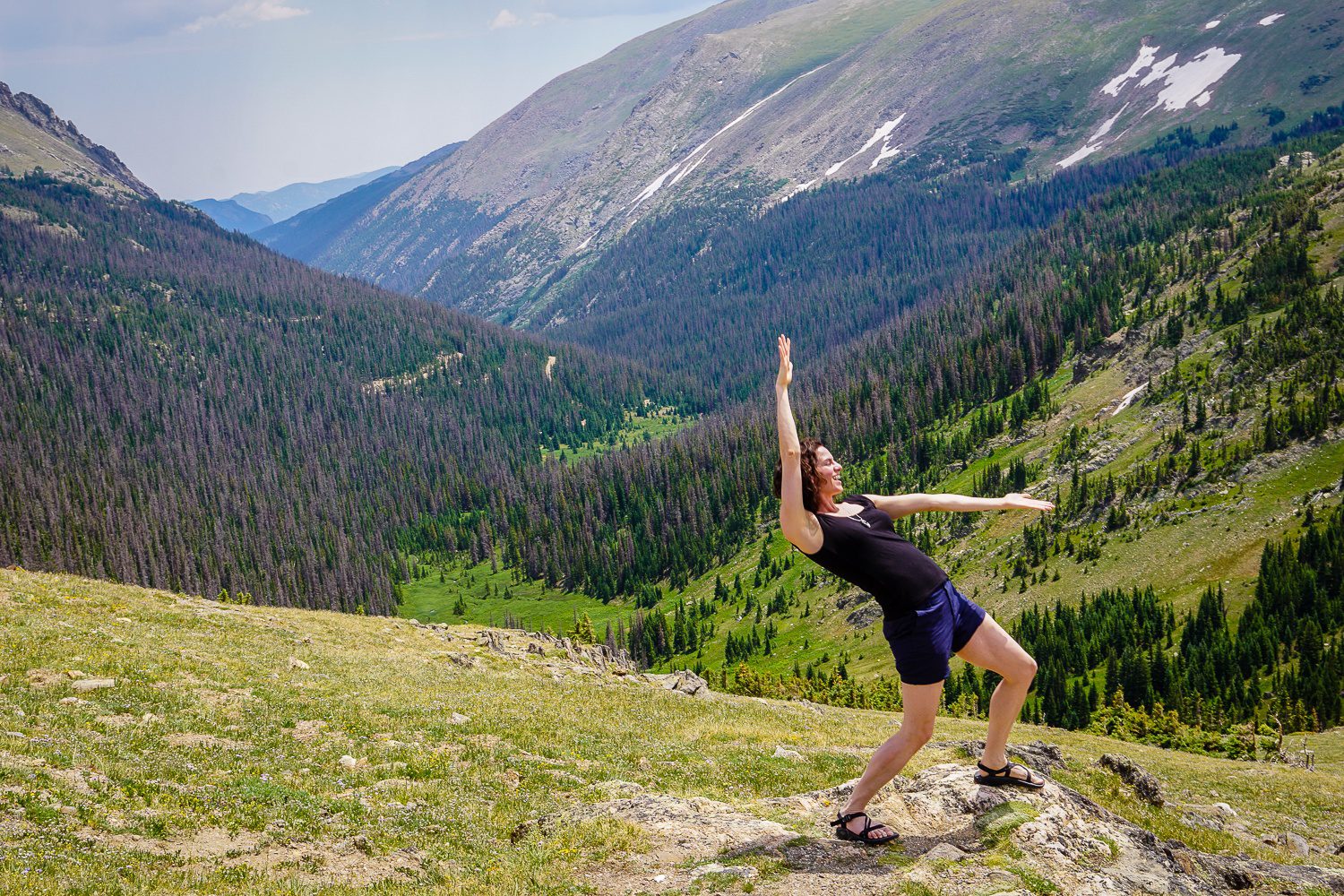
Answer: The spelling depends on WHERE you are in the world.
Now, the main purpose of this site is to share teacher travel grants and other global education opportunities, but I couldn’t resist creating this grammar article, because the “Traveling” spelling question comes up often, and causes kerfuffles.
I’ve been a full-time English teacher since 2003, so allow me to (ahem, pun coming) SPELL out the “Traveling or Travelling” rule for you in order to spread confidence and accuracy in the world.
Hey — it might even help in editing your applications for teacher fellowships , or assist in determining the correct way to structure a spelling lesson if you decide to teach English abroad !

Traveling vs. Travelling = U.S. vs. British Spelling
It’s all about geographical linguistics, my friends! The United States (and other countries that use American English spelling conventions) are in the “ one L ” boat for spelling.
In other words, if you’re in New York, or writing for a New York audience, what is correct is to write: “ Traveling ” because that’s the American spelling. If you’re in London, or writing for a London audience, tap: “ Travelling ” into your keyboard.
The same goes for all versions of Traveler/Traveller, and Traveled/Travelled: One “L” for countries that use American spelling, and two for places that embrace British English writing conventions. Simple !

Canada: Traveling or Travelling?
Wait… maybe it’s not THAT simple. What about Canada? That country is geographically close to the U.S. and thus should use just one “L,” right? Wrong .
Canada is one of the Commonwealth Countries: more than 50 nations that once were part of the British Empire. Hence, Canada uses the double – L rule, and if you’re in Quebec City , the correct spelling is: Travelling .
Other Commonwealth Countries that use the “two L” spelling (Travelled, Traveller, and so on) include Australia, South Africa, and New Zealand.
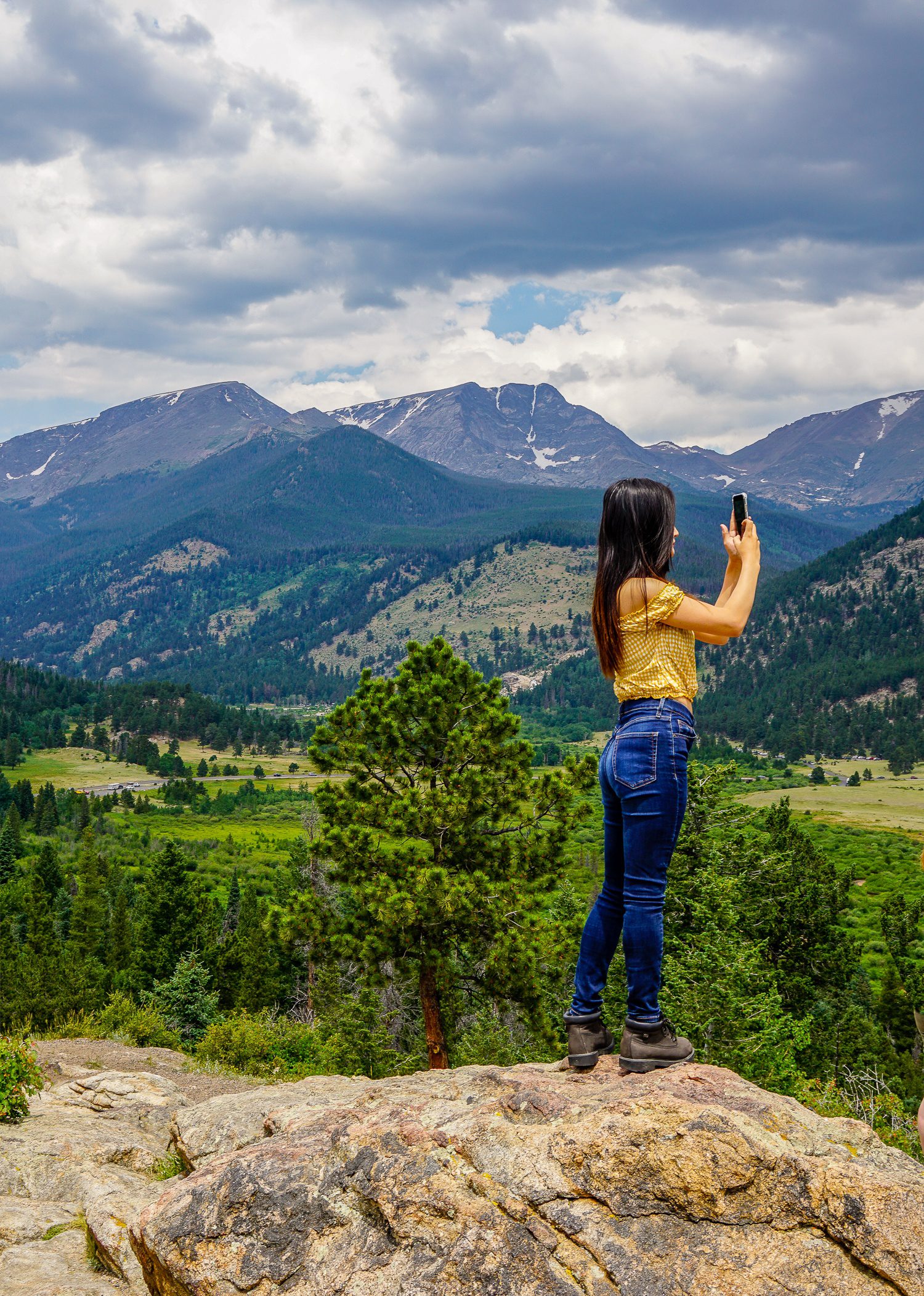
Is this Site Teaching Traveling or Travelling ?
The reason this site is called Teaching Traveling with ONE “L” is because I’m American , and my readership is predominantly American. (The one “L” thing is also a nice connection to the fact that my other site is called Around the World “L” !)
Alas, when things get tricky is when geographical worlds start to mix. This issue may pop up for you, too, so let’s address it directly.

What About a Mix of American and British Contexts?
Chances are you may find yourself in a situation where it’s unclear whether you should use the American or British version of our favorite “T” word. What then?
Here’s a frequent example I encounter on this site: If a British teacher types her answers to my interview questions using the double-L spelling, Travelling , do I go in and “ correct ” every instance of it to the single-L version ?
My American spell-checker sure thinks I should, and in fact is yelling at me to fix it at this very moment, its jaggedy red teeth bared!
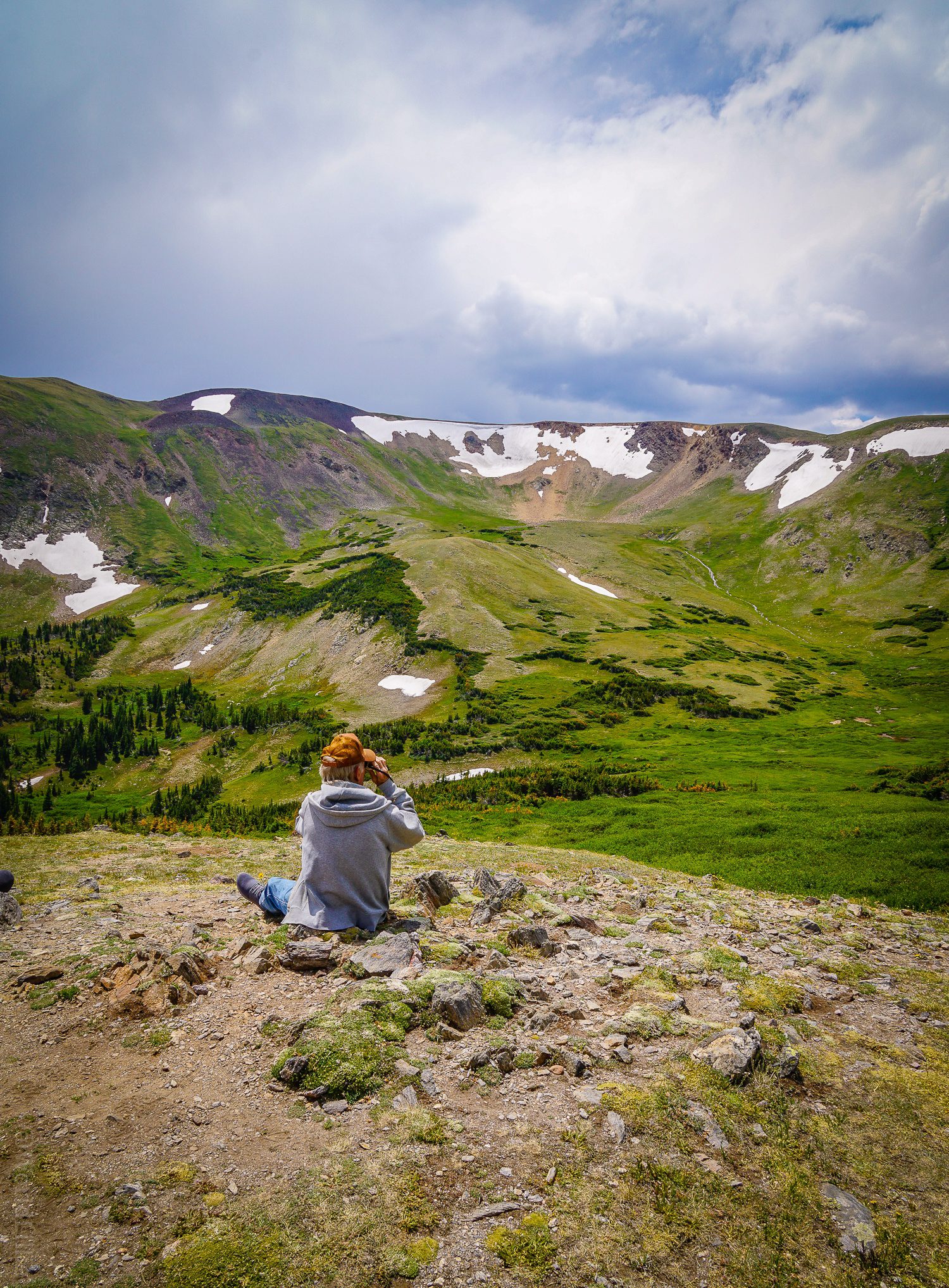
Should Travelling be Changed to Traveling ?
So what’s the answer to this two-context spelling dilemma? You have two choices, and either can be justified, depending on what your audience genuinely needs and wants.
Option #1 : Pick one spelling and stick to it throughout your body of work. In my case, if I chose this option, I would change all spelling on this site to the American one-L “Traveling.”
Sometimes I do this, clicking through all the U.S. spell-check suggestions to “fix” the British double L, because the article is one I know will mostly reach U.S. readers who might be confused by the unfamiliar spelling. Usually, however, I opt for the other option.
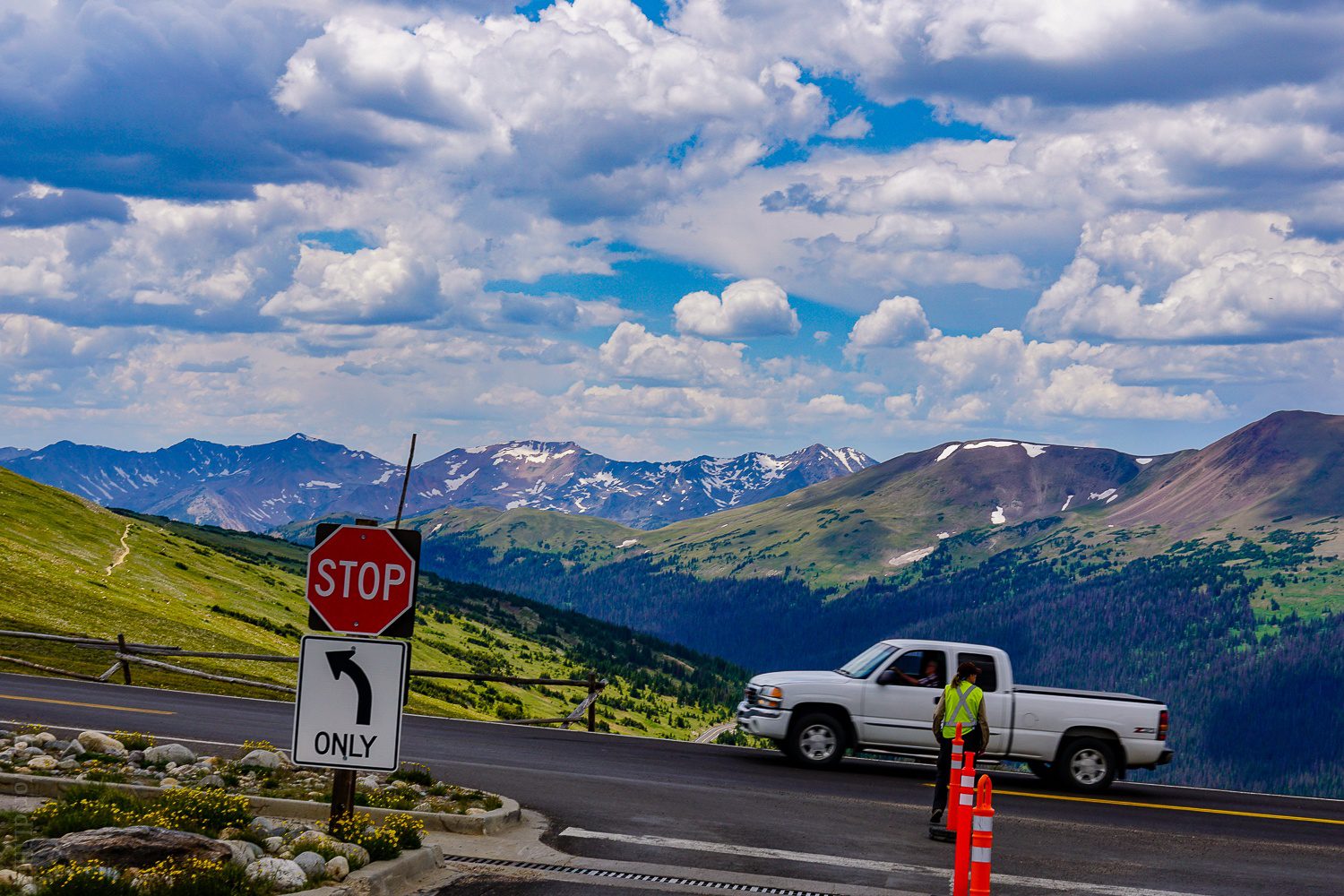
When to Keep “Travelling” Spelling
Option #2 : Change between “Travelling” and “Traveling” based on what the majority audience of the piece is expecting.
This option is what I chose to do for interviews with these teachers from Canada and Ghana , because I decided that readers would understand that the “Travelling” spelling was correct in the context of the British English country the speakers were from.
I also knew that the interviewees would also be sharing the articles with their friends, who in turn were used to the double-L spelling. In other words, it wouldn’t be correct for me to “correct” their British spelling in that situation.
Avoiding Traveling vs. Travelling
Bonus Option : Really stuck for whether to use Traveling or Travelling? If your piece is short enough, alter word choice so you don’t need to use either! For example, instead of saying, “I’m a traveller,” write, “I’m a person who loves to travel.” Kind of sneaky and sometimes silly, but if you’re really stuck, it’s an option.
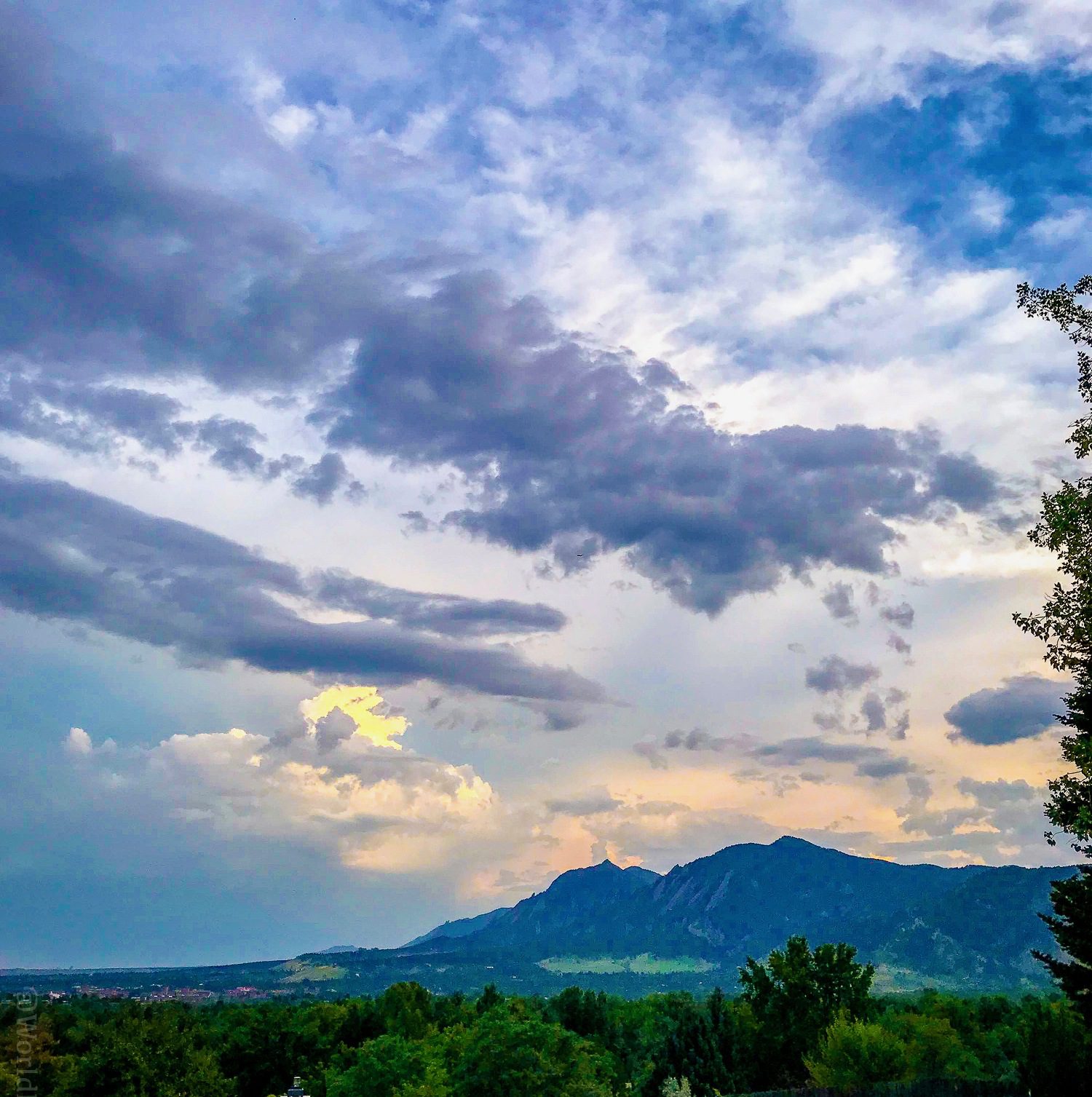
So, Traveling or Travelling?
In summary, it comes down to this: What does the specific audience of your written piece need and expect? Who you are and where you’re from becomes secondary to who they are and what they need.
That’s kind of deep , eh?
I hope you enjoyed this grammar lesson and found it useful. It’s the first one I’ve written (well, besides a tutorial on how to use the word “ Dushi “), and I must say that I found it so fun to write that I might just start putting down more of my 15 years of English teaching knowledge into articles…
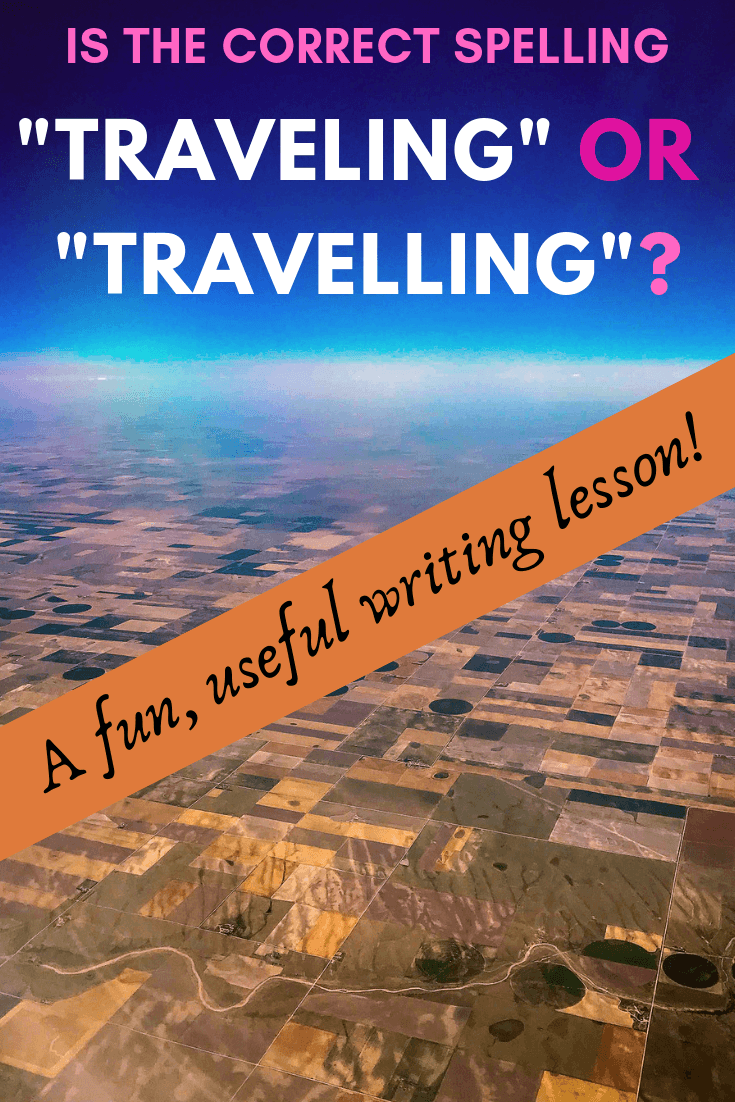
So what about you? What’s been your experience with the Traveling/Travelling divide? Did you know this rule before, and how did you learn it?
Are there other grammar, writing, or global education lessons you’d like to see on these pages? Do share!

The author, Lillie Marshall, is a 6-foot-tall National Board Certified Teacher of English from Boston who has been a public school educator since 2003. She launched TeachingTraveling.com in 2010 to share expert global education resources, and over 1.6 million readers have visited over the past decade. Lillie also runs AroundTheWorld L.com Travel and Life Blog, and DrawingsOf.com for educational art. Do stay in touch via subscribing to her monthly newsletter, and following @WorldLillie on social media!
Check this box to receive email notification of follow-up comments!
This site uses Akismet to reduce spam. Learn how your comment data is processed .
Monday 4th of January 2021
Thank you, Lillie! This was so helpful! I first learned English in Canada and often find myself "mixing up" American and British rules. It wasn't until recently that I learned that Canadian spelling is independent and consisting of both American and British rules! (normally including the "double L" rule and the "z" in words like specialize).
Lillie Marshall
So glad this helped! Very interesting that Canada uses a hybrid of British and American spellings, including the Z swap!
Tuesday 8th of September 2020
Lol I do have this issue in India is a Commonwealth country. Similarly, we have colour and color. Now I can say as long as you understand but when my kids were schooling I was after them for British spellings.
So interesting! Thank you for sharing!
Randy Franciose
Saturday 29th of August 2020
I misspelled this word on my wife's grave marker and only noticed my error yesterday, a year after she died. Does this imply she was an Anglophile or merely that her widower is a deficient speller?
Monday 11th of January 2021
@Lillie Marshall, Agreed!
Sunday 30th of August 2020
Never fear -- what you wrote was written with love and that's what matters!
Tuesday 28th of April 2020
When I was in Elementary School in the 1960's we were taught the double L rule. This was in the US.
Wednesday 11th of August 2021
@John, Same here. In Pennsylvania in the 1960's and 1970's, I was taught the double L rule, and still use it.
This is so interesting!!! Thank you for sharing this information. Do we think conventions changed over the years?
M Nazmul Huq Talukder
Tuesday 4th of February 2020
Yes, i faced problems while spelling this word.
Saturday 22nd of February 2020
Hope this helps!
- ABBREVIATIONS
- BIOGRAPHIES
- CALCULATORS
- CONVERSIONS
- DEFINITIONS

Grammar Tips & Articles »
Travelled vs. traveled, this grammar.com article is about travelled vs. traveled — enjoy your reading.
Lee travelled to the Middle East during vacations.
Or had she traveled?
Travel, a simple and common word of English, when used in its derivative forms can be written in two ways; with a single l or with two ls. This can be seen in traveled and travelled, traveling and travelling and traveler. These variations in the spellings arose due to differences in American English and British English and often result in confusion among writers.
These differences are openly discussed in this article where origin, meanings, usage and examples are used to clear out these confusions.
The word travel originated from Middle English: a variant of travail , and originally in the same sense.
Travel as verb:
Travel is used as a verb in English language where it means to make a journey, typically of some length.
The vessel had been travelling from Libya to Ireland.
To journey along (a road) or through (a region) and to withstand a journey without illness or impairment is also called travel.
He usually travels well, but he did get a bit upset on a very rough crossing.
Travel is also used to describe the task of being successful away from the place of origin.
Accordion music travels well.
Travel is used to imply the meaning of (of an object or radiation) movement, typically in a constant or predictable way.
Light travels faster than sound.
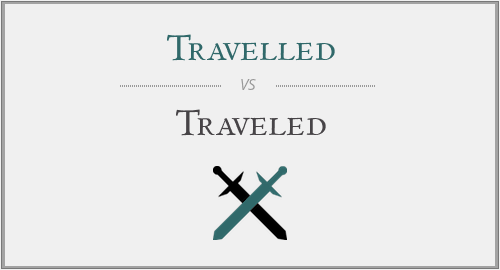
The action of travelling is called travel as noun.
My job involves a lot of travel.
Something that is (of a device) sufficiently compact for use on a journey is called travel.
She packed a travel iron along with other things.
Travelling or traveling:
Travelling and traveling are the two spellings of the same word. Both of these spellings are acceptable and exchangeable in English language but their usage differ according to the part of the world they are spoken in. In American English, the inflected forms of travel take one l—so, traveled, traveling, traveler, etc. In varieties of English from outside the U.S., these forms take two l’s—travelled, travelling, traveller, etc.
On average, it traveled 4 to 5 miles an hour. [Los Angeles Times]
Morgan claimed the French vessel has been towing at 4 nautical miles, whereas the tugs could have traveled at 6 to 7 nautical miles. [Newsday (dead link)]
But perhaps the most logical of all explanations is that Romney is a time traveler. [Washington Post]
When to use which spellings?
If you reside in US, the acceptable spellings are the ones with a single l; traveling. However, if you belong to Europe, the acceptable spellings are with two ls; travelling. Remember to choose the spellings according to your audience too. If you are writing for American community, you should use American spellings and vice versa.
Email Print
Have a discussion about this article with the community:
Report Comment
We're doing our best to make sure our content is useful, accurate and safe. If by any chance you spot an inappropriate comment while navigating through our website please use this form to let us know, and we'll take care of it shortly.
You need to be logged in to favorite .
Create a new account.
Your name: * Required
Your email address: * Required
Pick a user name: * Required
Username: * Required
Password: * Required
Forgot your password? Retrieve it
Use the citation below to add this article to your bibliography:
Style: MLA Chicago APA
"Travelled vs. Traveled." Grammar.com. STANDS4 LLC, 2024. Web. 24 Apr. 2024. < https://www.grammar.com/travelled_vs._traveled >.
The Web's Largest Resource for
Grammar & spelling, a member of the stands4 network, free, no signup required :, add to chrome.
Two clicks install »
Add to Firefox
Browse grammar.com.

Free Writing Tool :
Instant grammar checker.
Improve your grammar, vocabulary, and writing -- and it's FREE !
Try it now »

Are you a grammar master?
Choose the sentence with the correct use of comparative adjectives:.

Improve your writing now :
Download grammar ebooks.
It’s now more important than ever to develop a powerful writing style. After all, most communication takes place in reports, emails, and instant messages.
- Understanding the Parts of Speech
- Common Grammatical Mistakes
- Developing a Powerful Writing Style
- Rules on Punctuation
- The Top 25 Grammatical Mistakes
- The Awful Like Word
- Build Your Vocabulary
More eBooks »

Is it Traveling or Travelling—Correct Spelling Guide

What is the correct way to spell “traveling?” Can you spell it “travelling” if you want?
To travel the world and visit other countries is often seen as an enjoyable way to spend one’s free time.
But how do you spell “traveling,” the verb form of “travel”?
Don’t search anywhere else; here is everything you need to know about the term “travel.”
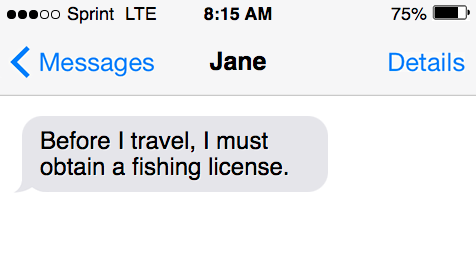
“Traveling” or “travelling”
The difference between the two terms is your audience.
That said, “traveling” is the preferred way to spell the word in the United States.
You will find this correct spelling in the Merriam-Webster dictionary.
However, if your readers are located in the United Kingdom in the Commonwealth , the term is spelled “travelling.”
The subtle distinction of one “L” versus two simply depends on what country you are writing in/for.
Therefore , “travelers” and “traveled” are the U.S. forms, while “travellers” and “travelled” are the UK forms.
No matter the country, the present tense form of the word “travel” is spelled the same and does not require a second “L” at the end.
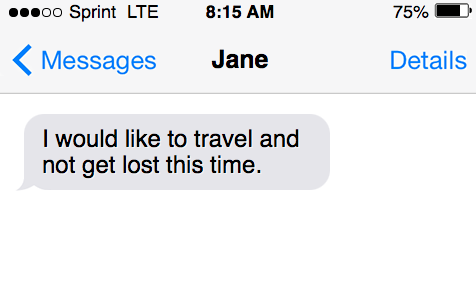
Root word: travel
Travel can serve as a verb or a noun .
As an intransitive verb , “travel” is defined as “To go on a trip or tour to a destination.”
Similarly, as a transitive verb, “travel” is defined as “to journey through or over.”
The definition for “travel” in its noun form is “a journey, especially to a distance or unfamiliar place.”
Be aware that the noun version of the word is often used as a plural.
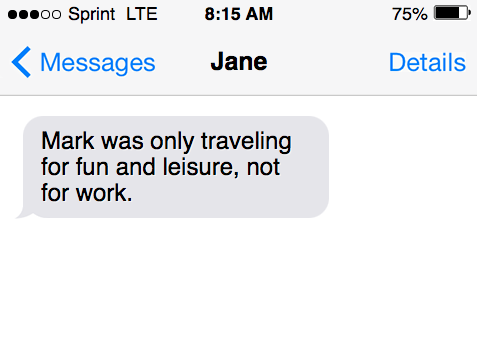
Travelers definition
Another term that comes from “travel” is “traveler” or, in its plural version, “travelers.”
That said, a traveler is commonly referred to as “one that goes on a trip or journey.”
Essentially, “traveler” can be used to describe a person who is taking a trip by car, train, plane, etc.
If subjects in a sentence are going on a journey through different countries or simply to the grocery store, they are “travelers.”

What type of word is “traveling?”
Verbs ending in “-ing” are either present participles or gerunds .
The two styles of words look the same, but their functions in a sentence are different.
Further , present participles can be used in all continuous verb formations ( past , present, future, etc.).
With verbs ending in “-ing,” the helping verb will tell the reader the tense (acting as a link) while the present participles remain unchanged.
Take the below examples, for instance:
- “The boy is watching the trains.”
- “Shelia was waiting for her survey.”
- “My family will be coming to Canada in July.”
- “The group would be moving to Germany if the cost wasn’t an issue.”
- “I would have been picking out my free ice cream flavor by now.”
Intransitive vs. transitive verbs
According to the Merriam-Webster definition, “traveling” can act as both a transitive and intransitive verb .
Transitive verbs will always have a noun that receives the action described by the verb; this noun is called the direct object .
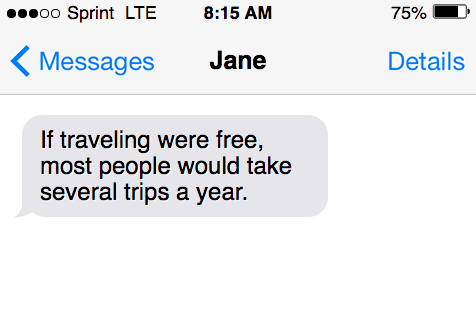
“Tommy lifts the weight.”
In the previous example, “lifts” is the verb and “the weight” is the object receiving the verb’s action.
Therefore, “lifts” is a transitive verb.
On the other hand, intransitive verbs never have a direct or indirect object.
There is no object that receives an intransitive verb’s action.
“The group walks quickly to their destination.”
In this case, the verb is “walks,” and the modifying phrase is “quickly to their destination.”
As you will notice, no object receives the action that “walks” describes.
When to use traveling in writing
Recall that verbs ending in “-ing,” like “traveling,” can be used in the present, future, and past tense.
This present participles rely on the helping verb to indicate the tense of the sentence.
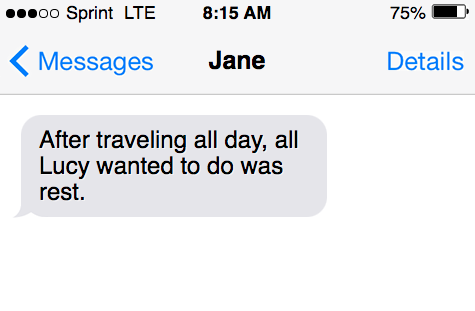
So, you can use the term to say the same thing, just in different tenses .
“He is traveling abroad” can also begin the following ways and still be grammatically correct.
- “He was…”
- “He will be…”
- “He would be…”
- “He would have been…”
You use this term to describe a subject who is, will be, was on their way to a different area than where they came from.
Examples of traveling in a sentence
If you have the correct spelling of the term down but are having a tough time using the term in a sentence, take a look at these sentences.
Using travel/traveling as a verb
- “If traveling were free, most people would take several trips a year.”
- “After traveling all day, all Lucy wanted to do was rest.”
- “I would like to travel and not get lost this time.”
- “Mark was only traveling for fun and leisure, not for work.”
- “All my life, I wanted to travel the world for fun, and now I finally get to!”
- “Before I travel, I must obtain a fishing license.”
Using travel as a noun
“At this time, international travel is banned for safety reasons.”
“He wanted to obtain a free travel license from the site, but the page wouldn’t load.”
“Safety was the top priority for Lisa after she would arrive at her travel excursion.”
“My travels demanded that I use services associated with the train to see my sister.”
“All her life, Katy was never oriented with foreign travel.”
“The new social movement talked about the future of crime and travel in the country.”
“I’d like to use this travel to connect with as many people as possible.”
Why is traveling commonly misspelled?
Why does “traveling” have two different ways of spelling the term?
Most of this is credited to Noah Webster , one link of the famous dictionary we frequently use today.
As a lexicographer and linguist, Webster influenced American English more than most people realize.
That said, he preferred the shorter version of most words that had multiple different ways of spelling.
After including the shorter version of terms in his dictionary, these words became dominant in the United States.
The rest of the English-speaking countries out there preferred the longer spellings of terms.
That said, countries like Australia, Canada, and the UK spell the term “travelling” with two “L”s instead of one.
How to remember which word to use
In the case of the present participle version of “travel,” remember that shorter is better.
“Travelling” is the proper spelling in British English.
So, if that is your audience, use that version.
However, American English demands the spelling “traveling.”
External links to sources
- Present participles: The -ing forms – EF.edu
- Traveler definition – Merriam-Webster
- Verb Tenses – Grammarly
- Types of Verbs – UVU.edu
- Travel definition – Merriam-Webster
- Traveling or Travelling? – Grammarly
- Noah Webster | American lexicographer | Britannica
- lexicographer – definition and examples – ThoughtCo
Inside this article
Fact checked: Content is rigorously reviewed by a team of qualified and experienced fact checkers. Fact checkers review articles for factual accuracy, relevance, and timeliness. Learn more.

About the author
Dalia Y.: Dalia is an English Major and linguistics expert with an additional degree in Psychology. Dalia has featured articles on Forbes, Inc, Fast Company, Grammarly, and many more. She covers English, ESL, and all things grammar on GrammarBrain.
Core lessons
- Abstract Noun
- Accusative Case
- Active Sentence
- Alliteration
- Adjective Clause
- Adjective Phrase
- Adverbial Clause
- Appositive Phrase
- Body Paragraph
- Compound Adjective
- Complex Sentence
- Compound Words
- Compound Predicate
- Common Noun
- Comparative Adjective
- Comparative and Superlative
- Compound Noun
- Compound Subject
- Compound Sentence
- Copular Verb
- Collective Noun
- Colloquialism
- Conciseness
- Conditional
- Concrete Noun
- Conjunction
- Conjugation
- Conditional Sentence
- Comma Splice
- Correlative Conjunction
- Coordinating Conjunction
- Coordinate Adjective
- Cumulative Adjective
- Dative Case
- Declarative Statement
- Direct Object Pronoun
- Direct Object
- Dangling Modifier
- Demonstrative Pronoun
- Demonstrative Adjective
- Direct Characterization
- Definite Article
- Doublespeak
- Equivocation Fallacy
- Future Perfect Progressive
- Future Simple
- Future Perfect Continuous
- Future Perfect
- First Conditional
- Gerund Phrase
- Genitive Case
- Helping Verb
- Irregular Adjective
- Irregular Verb
- Imperative Sentence
- Indefinite Article
- Intransitive Verb
- Introductory Phrase
- Indefinite Pronoun
- Indirect Characterization
- Interrogative Sentence
- Intensive Pronoun
- Inanimate Object
- Indefinite Tense
- Infinitive Phrase
- Interjection
- Intensifier
- Indicative Mood
- Juxtaposition
- Linking Verb
- Misplaced Modifier
- Nominative Case
- Noun Adjective
- Object Pronoun
- Object Complement
- Order of Adjectives
- Parallelism
- Prepositional Phrase
- Past Simple Tense
- Past Continuous Tense
- Past Perfect Tense
- Past Progressive Tense
- Present Simple Tense
- Present Perfect Tense
- Personal Pronoun
- Personification
- Persuasive Writing
- Parallel Structure
- Phrasal Verb
- Predicate Adjective
- Predicate Nominative
- Phonetic Language
- Plural Noun
- Punctuation
- Punctuation Marks
- Preposition
- Preposition of Place
- Parts of Speech
- Possessive Adjective
- Possessive Determiner
- Possessive Case
- Possessive Noun
- Proper Adjective
- Proper Noun
- Present Participle
- Quotation Marks
- Relative Pronoun
- Reflexive Pronoun
- Reciprocal Pronoun
- Subordinating Conjunction
- Simple Future Tense
- Stative Verb
- Subjunctive
- Subject Complement
- Subject of a Sentence
- Sentence Variety
- Second Conditional
- Superlative Adjective
- Slash Symbol
- Topic Sentence
- Types of Nouns
- Types of Sentences
- Uncountable Noun
- Vowels and Consonants
Popular lessons

Stay awhile. Your weekly dose of grammar and English fun.

The world's best online resource for learning English. Understand words, phrases, slang terms, and all other variations of the English language.
- Abbreviations
- Editorial Policy

Traveling vs. Travelling: Which One Should You Use?
By: Author Oliver
Posted on Last updated: September 5, 2023
Sharing is caring!
Are you confused about whether to spell it as “traveling” or “travelling”? Do you find yourself switching between the two spellings, unsure which one is correct? You’re not alone! The difference in spelling between “traveling” and “travelling” can be confusing, especially for those who are not native English speakers. In this article, we’ll explore the differences between these two spellings and help you understand when to use each one.
Traveling vs. Travelling

Traveling vs. Travelling: The Differences
Traveling vs. travelling | definition.
Travelling and traveling are two spellings of the same word, which means to move from one place to another. The only difference between them is the way they are spelled. Travelling is the preferred spelling in British English, while traveling is the preferred spelling in American English.
Traveling vs. Travelling | Usage
The choice between traveling and travelling depends on the region where you are writing or speaking. If you are writing for an American audience, use traveling. If you are writing for a British audience, use travelling. However, it is worth noting that both spellings are acceptable in both regions, and there is no right or wrong choice.
Key Differences between Travelling and Traveling in a Comparing Table
It’s important to note that the differences between travelling and traveling are minor and do not affect the meaning of the word. Both spellings refer to the same action of moving from one place to another.
Traveling vs. Travelling Examples
When it comes to the spelling of the present participle of the verb “travel,” there are two different spellings: “travelling” and “traveling.” The spelling you choose depends on which English you are using, British or American.
Correct Usage in Different Contexts
In British English, “travelling” with two “Ls” is the standard spelling, while in American English, “traveling” with one “L” is preferred. It is important to note that both spellings are correct, and the choice between them is a matter of regional preference.
Examples of Travelling in Sentences
Here are some examples of “travelling” in sentences:
- I will be travelling to Europe next month.
- She enjoys travelling to new places.
- The company reimburses employees for their travelling expenses.
Examples of Traveling in Sentences
Here are some examples of “traveling” in sentences:
- I will be traveling to Europe next month.
- She enjoys traveling to new places.
- The company reimburses employees for their traveling expenses.
As you can see, the meaning of the sentences is not affected by the spelling choice. However, it is important to be consistent in your spelling choice throughout your writing.
Common Mistakes and Misconceptions
When it comes to the spelling of “traveling” and “travelling,” there are a few common mistakes and misconceptions that people often have. Let’s take a look at some of them.
Mistake #1: Thinking That One Spelling Is Always Correct
One of the biggest mistakes that people make when it comes to “traveling” and “travelling” is assuming that one spelling is always correct. In reality, both spellings are correct, but they are used in different parts of the world. In the United States, “traveling” is the preferred spelling, while in the United Kingdom and other English-speaking countries, “travelling” is more commonly used.
Mistake #2: Using the Wrong Spelling in the Wrong Context
Another common mistake is using the wrong spelling in the wrong context. For example, if you are writing for an American audience, you should use “traveling,” while if you are writing for a British audience, you should use “travelling.” Using the wrong spelling can make your writing look unprofessional and can even make it difficult for readers to understand what you are trying to say.
Misconception #1: One Spelling Is More Correct Than the Other
Some people believe that one spelling is more correct than the other, but this is not true. Both spellings are equally correct, and it is simply a matter of regional preference. If you are unsure which spelling to use, it is always a good idea to check the audience you are writing for and use the appropriate spelling for that region.
Misconception #2: The Spelling Determines the Meaning
Another misconception is that the spelling of “traveling” or “travelling” determines the meaning of the word. In reality, the spelling has no impact on the meaning of the word. “Traveling” and “travelling” both refer to the act of going from one place to another, regardless of how it is spelled.
To summarize, both “traveling” and “travelling” are correct spellings of the same word. However, they are used in different parts of the world and should be used based on your audience. Remember that the spelling does not determine the meaning of the word, so use the appropriate spelling based on your audience and context.
Tips to Remember the Difference Between Travelling and Traveling
Travelling and traveling are two variations of the same word, and they have the same meaning. The only difference is in their spelling, which is entirely dialectal. However, if you want to use the correct spelling, you need to know which one to use and when.
Here are some tips to help you remember the difference between travelling and traveling:
- Know your audience : If you are writing for an American audience, use “traveling.” If you are writing for a British audience, use “travelling.”
- Use a spell checker : If you are unsure which spelling to use, you can use a spell checker to help you. Most spell checkers will give you the correct spelling based on the dialect you have selected.
- Remember the double “L” : The British spelling of “travelling” has a double “L,” while the American spelling of “traveling” has only one “L.” This is an easy way to remember which spelling to use.
- Use consistent spelling : If you are writing a document or article, make sure you use the same spelling throughout. This will help to avoid confusion and make your writing look more professional.
Here are some examples of the correct usage of travelling and traveling:
- I am traveling to New York next week. (American spelling)
- She enjoys travelling to Europe every summer. (British spelling)
- The airline offers free Wi-Fi when you are traveling internationally. (American spelling)
- He has been traveling around Asia for the past six months. (American spelling)
Traveling vs. Travelling Exercises
Do you know the difference between “traveling” and “travelling”? These two words have the same meaning, but they are spelled differently depending on where you are in the world. In this section, we will give you some exercises to help you understand the differences between these two words.
Exercise 1: True or False
Decide if the following statements are true or false.
“Traveling” is the correct spelling in British English.
“Travelling” is the correct spelling in American English.
“Traveling” is more commonly used in the United States.
“Travelling” is more commonly used in the United Kingdom.
Exercise 2: Compare and Contrast
Look at the following table and compare the differences between “traveling” and “travelling”.
As you can see, the only difference between these two words is the spelling. “Traveling” is spelled with one “L” and is more commonly used in the United States, while “travelling” is spelled with two “Ls” and is more commonly used in the United Kingdom.
In conclusion, whether you use “traveling” or “travelling” depends on where you are in the world. It’s important to be aware of these spelling differences so that you can communicate effectively with others.
Frequently Asked Questions
What are the benefits of traveling?
Traveling provides many benefits, including the opportunity to experience new cultures, meet new people, and learn about different ways of life. It can broaden your perspective and help you gain a better understanding of the world. Traveling can also be a great way to relax, escape from your daily routine, and create lasting memories.
How can I write a good travelling essay?
To write a good traveling essay, you should start by choosing a specific topic or destination that you want to write about. Then, you should conduct research to gather information and details about the place or experience. Use descriptive language to paint a vivid picture of the sights, sounds, and experiences you encountered. Finally, make sure to edit and revise your essay to ensure that it is clear, concise, and engaging.
What is Travelling Basketball?
Travelling basketball is a term used to describe youth basketball teams that travel to different locations to compete against other teams. These teams often participate in tournaments and leagues that require them to travel to different cities or states to play.
What is the difference between traveler and traveller?
The difference between traveler and traveller is simply a matter of spelling. Traveler is the American English spelling, while traveller is the British English spelling. Both words refer to a person who travels.
How do you correctly use traveling in a sentence?
Traveling is a present participle that can be used as a verb or an adjective. As a verb, it means to move from one place to another. As an adjective, it describes something related to travel. Here are some examples:
- I am traveling to Europe next week.
- The traveling circus is coming to town.
- The traveling salesman visited several cities in one day.
In summary, traveling and travelling are both correct spellings of the present participle of the verb “travel”. The spelling tends to vary based on whether you’re writing in American or British English. Use the spelling that is appropriate for your audience.
"}},{"@type":"Question","name":"How can I write a good travelling essay?","acceptedAnswer":{"@type":"Answer","text":"
"}},{"@type":"Question","name":"What is Travelling Basketball?","acceptedAnswer":{"@type":"Answer","text":"
"}},{"@type":"Question","name":"What is the difference between traveler and traveller?","acceptedAnswer":{"@type":"Answer","text":"
"}},{"@type":"Question","name":"What is the AP Style for travelled or traveled?","acceptedAnswer":{"@type":"Answer","text":"
According to the AP Stylebook, both traveled and travelled are acceptable spellings. However, the preferred spelling is traveled, without the extra \"l\". This is the spelling used in American English.
"}},{"@type":"Question","name":"How do you correctly use traveling in a sentence?","acceptedAnswer":{"@type":"Answer","text":"
In summary, traveling and travelling are both correct spellings of the present participle of the verb \"travel\". The spelling tends to vary based on whether you're writing in American or British English. Use the spelling that is appropriate for your audience.
- Recent Posts
- Plural of Safe: What It Is and How to Use It Correctly - October 3, 2023
- Purple Color Names: Different Hues of Purple - October 2, 2023
- Addition Transition Words for Clear and Cohesive Writing - September 30, 2023
Related posts:
- Accent vs. Ascent vs. Assent: Understanding the Differences
- Acute vs. Chronic: Understanding the Differences and Implications
- Sashimi vs. Sushi: A Guide to the Art of Japanese Raw Fish Cuisine
- Walnut vs. Pecan: What’s the Nutty Difference?

- TEFL Internship
- TEFL Masters
- Find a TEFL Course
- Special Offers
- Course Providers
- Teach English Abroad
- Find a TEFL Job
- About DoTEFL
- Our Mission
- How DoTEFL Works
Forgotten Password

- Traveling or Travelling? Which is the Correct Spelling?
- Learn English
- James Prior
- No Comments
- Updated February 5, 2024

Traveling or travelling? Which is the correct spelling?!
Traveling is one of the most popular activities in the world. It can take many forms, from going on a weekend getaway to taking a luxurious vacation abroad. Despite its popularity, there is still some confusion surrounding the correct spelling of the word.
As DoTEFL is a website dedicated to teaching English and traveling via TEFL , it only feels right that we clear up any confusion about the correct spelling of traveling (or should I say travelling?). After all, it’s a question that gets asked a lot and spelling is an important part of English grammar.
So, before you start writing your packing list and set off on your travels, let’s explore the difference between traveling and travelling and look at which spelling should be used.
So, what’s the answer?
Table of Contents
Traveling Vs Travelling?
Traveling or Travelling? When it comes to the English language, there can be quite a bit of confusion in regards to spelling. While “traveling” is the preferred spelling in American English, “travelling” is the preferred spelling in British English.
Firstly, the spelling of both words is correct and they are both the same word! However, there are a couple of things to keep in mind when deciding which one to use.
The first difference between traveling and travelling is geographical location. American English typically uses “traveling” while British English opts for “travelling”. So, if you’re an American writer, “traveling” will generally be your go-to choice; if you’re British, or if you live in one of the other commonwealth countries , then “travelling” should do the trick!
However, you also need to keep in mind your audience. If you’re writing for an American audience it would make sense to use “traveling”. Whereas if you’re writing for an English audience you’d want to opt for “travelling”. In my case I am an English writer but our website has a larger audience in the U.S. so I have used the spelling of traveling with one ‘l’ here.

Where is Traveling Used?
Traveling is used when the author is writing in American English or writing for an U.S. audience.
Where is Travelling Used?
Travelling is used when the author is writing in British English. However, the audience isn’t just confined to Britain here.
There are 54 countries in the Commonwealth, which is an association of countries across the world historically connected to the British Empire. They all use the British English spelling of “travelling” with two ‘L’s. This includes Commonwealth Countries such as Canada, Australia and New Zealand, plus all the other commonwealth countries.
So, if you travel across the U.S. border into Canada you go from being a traveler to a traveller!
Can you use a mix of traveling and travelling?
It’s best to avoid using a mixture of the two spellings, even if your audience is unclear. This is because you should always be consistent with your grammar throughout a piece of writing.
You should also be aware of this if you ever use a grammar checker to go over your work. For example, if you write in British English but the grammar checker is set to American English, you may find yourself inadvertently making corrections from “travelling” to “traveling”. If this does happen, make sure that you don’t accidentally only change half by mistake!
Should you change travelling to traveling?
The answer to this question comes down to your audience. You have to write according to what your audience understands and needs. If they are a British English audience you should keep “travelling”. If the audience uses American English then you’ll want to consider changing it to “traveling”.
On this site we predominantly use the spelling “travelling”. However, if there are articles that are mainly read by our audience in the UK we will use “travelling”.
For whatever piece of writing your doing, the key thing is to choose a spelling and stick to it. Consistency is the key.
And, if you want to avoid the traveling Vs travelling conundrum altogether you can always get creative. For example, instead of writing “I like travelling”, you could write “I like to travel”. Or, instead of “I’m a traveler”, you can just use “I travel”.
Traveler or Traveller?

The same rules apply for the spellings of traveler or traveller and traveled or travelled. If you’re using American spelling go with one ‘L’ but if you’re writing for countries that use British English conventions go with two ‘L’s!
Conclusion: The Road Less Traveled?
When determining whether to use “traveling” or “travelling” it is important to consider your audience and understand that language conventions may vary from region to region. “Traveling” is more commonly used in the United States, but in nearly all other English-speaking countries, the spelling of “travelling” is preferred.
With this in mind, you should write for the needs of your audience. Where you are from should be secondary to where your audience is from, as it they who you serve and seek to provide value to.
What about you, do you use traveling or travelling? What were you taught in school? Let us know in the comments and continue to enjoy your travels!
- Recent Posts
- How to Write a TOEFL Essay - April 22, 2024
- What Can You Do with a TEFL Certificate? - April 5, 2024
- 19 Best Learning Management System Examples for 2024 - April 4, 2024
More from DoTEFL

Co-Teaching: What is it & How to Make it Work?
- Updated February 26, 2024
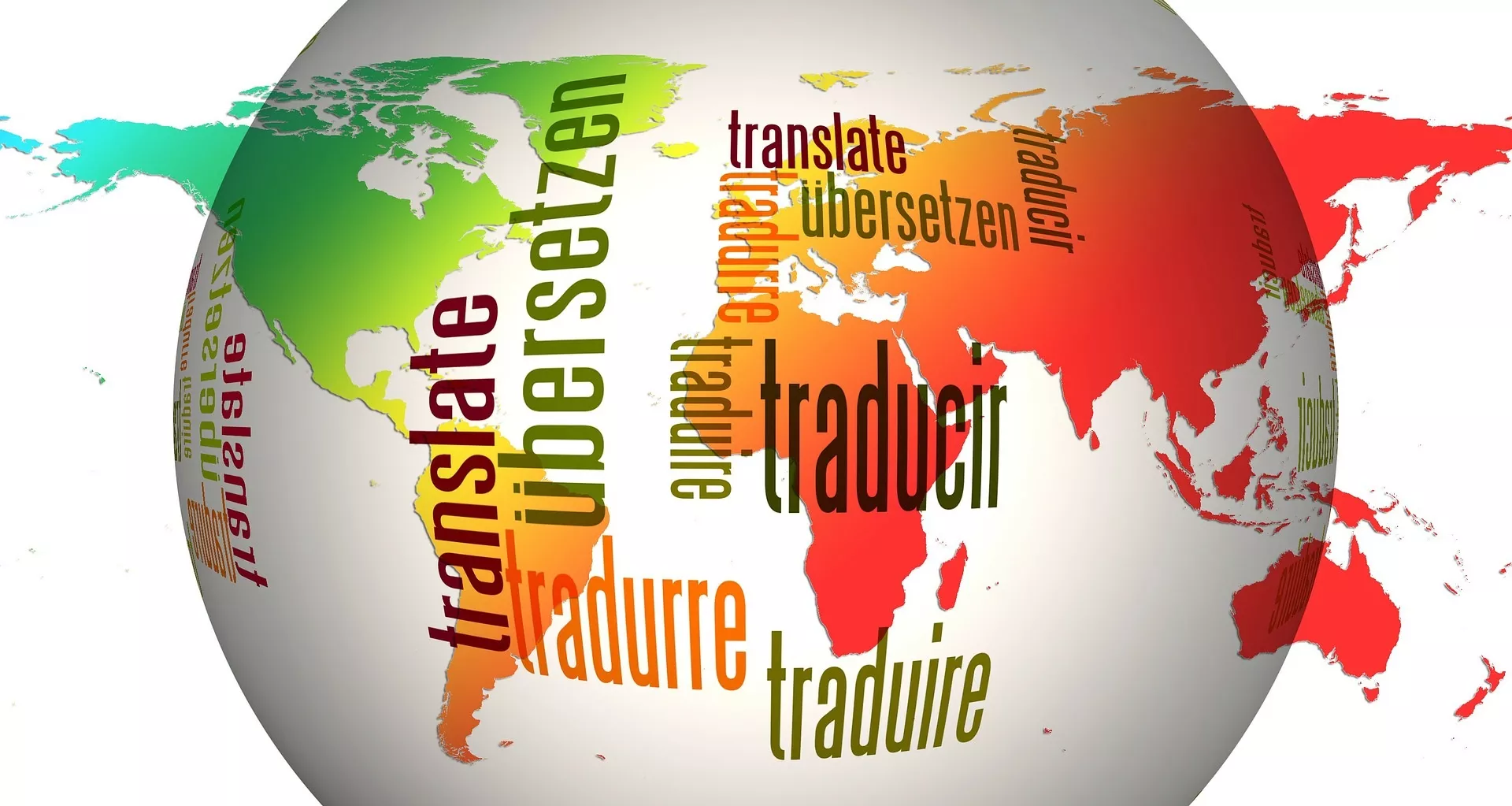
Top 5 Best Translation Apps: Bridging Language Gaps in 2024
- Updated February 2, 2024

9 Fun Word Games For English Learners to Improve Vocabulary
- Updated January 10, 2024
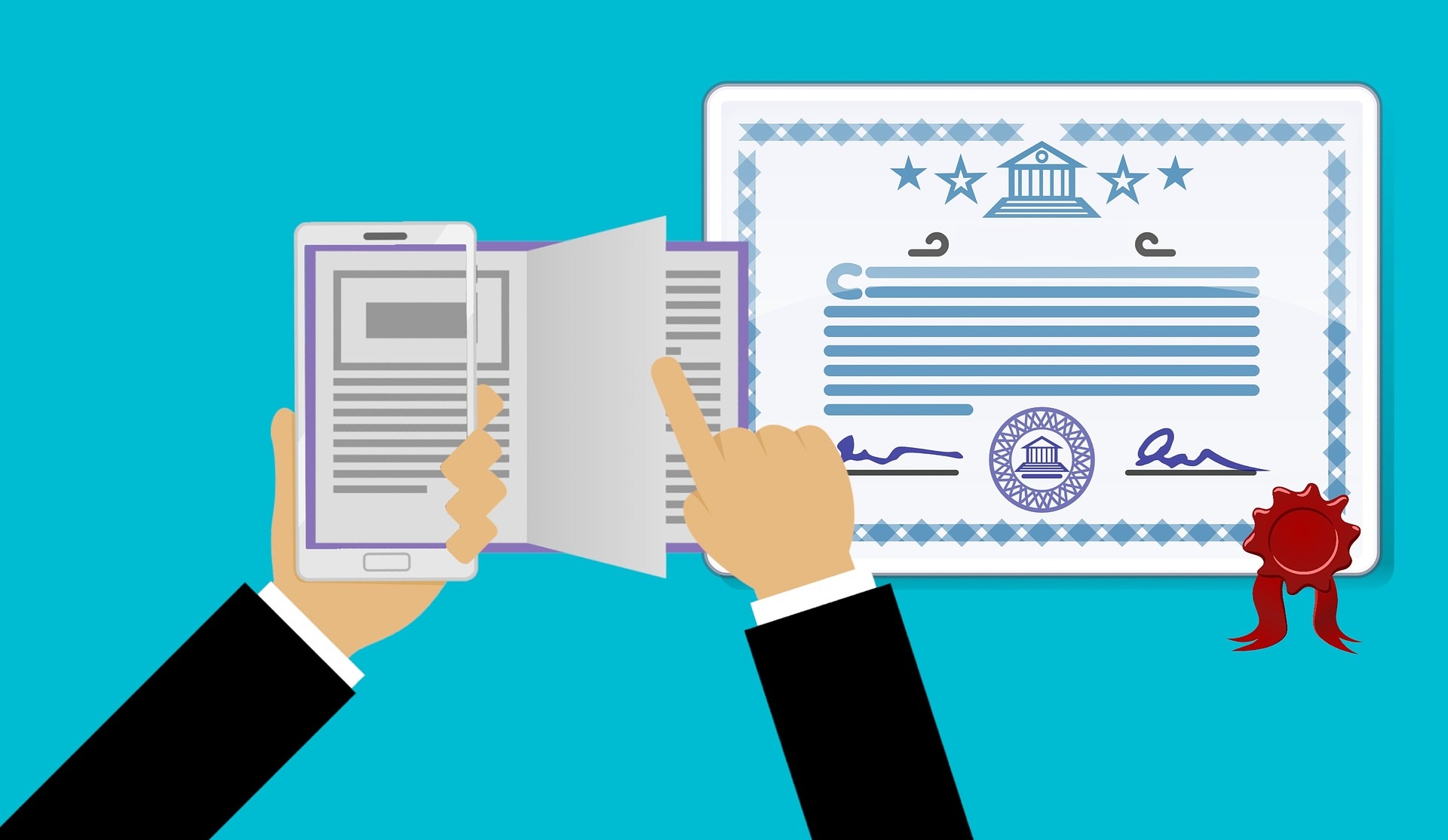
Do TEFL Certificates Expire? What You Need to Know
- Updated January 29, 2024

6 Countries That Pay the Highest Salary for Teaching English Abroad
- Updated March 7, 2024
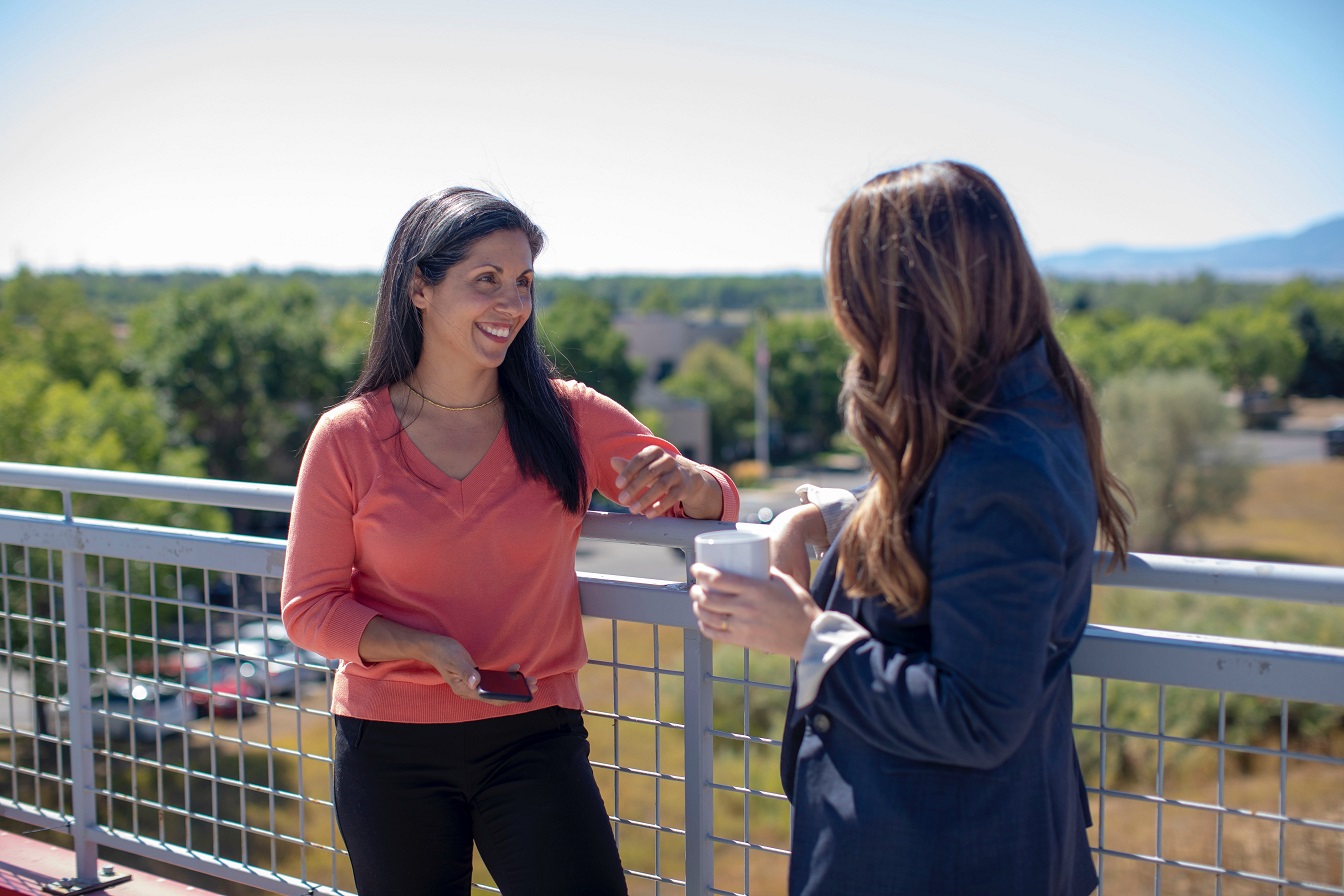
What is Fluency in English & Can You Teach it?
- Updated January 12, 2024
- The global TEFL course directory.
- More from M-W
- To save this word, you'll need to log in. Log In
Definition of travel
(Entry 1 of 2)
intransitive verb
transitive verb
Definition of travel (Entry 2 of 2)
- peregrinate
- peregrination
Examples of travel in a Sentence
These examples are programmatically compiled from various online sources to illustrate current usage of the word 'travel.' Any opinions expressed in the examples do not represent those of Merriam-Webster or its editors. Send us feedback about these examples.
Word History
Middle English travailen, travelen to torment, labor, strive, journey, from Anglo-French travailler
14th century, in the meaning defined at intransitive sense 1a
14th century, in the meaning defined at sense 1a
Phrases Containing travel
- pre - travel
- see / travel the world
- travel agency
- travel agent
- travel light
- travel sickness
- travel trailer
Articles Related to travel

Is it ‘traveling’ or...
Is it ‘traveling’ or ‘travelling’?
A tale of two variants
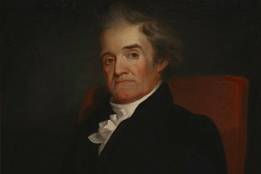
Noah Webster's Spelling Wins and Fails
Some of his biggest successes and defeats

8 Ways to Get Away From It All
Whether it's a jaunt or a junket, remember sunblock.
Dictionary Entries Near travel
Cite this entry.
“Travel.” Merriam-Webster.com Dictionary , Merriam-Webster, https://www.merriam-webster.com/dictionary/travel. Accessed 24 Apr. 2024.
Kids Definition
Kids definition of travel.
Kids Definition of travel (Entry 2 of 2)
Middle English travailen "torment, labor, strive, journey," from early French travailler "torment, labor," from an unrecorded Latin verb tripaliare "to torture," from Latin tripalium "an instrument of torture," literally "three stakes," derived from tri- "three" and palus "stake, pale" — related to pale entry 3 , travail
More from Merriam-Webster on travel
Nglish: Translation of travel for Spanish Speakers
Britannica English: Translation of travel for Arabic Speakers
Britannica.com: Encyclopedia article about travel
Subscribe to America's largest dictionary and get thousands more definitions and advanced search—ad free!

Can you solve 4 words at once?
Word of the day.
See Definitions and Examples »
Get Word of the Day daily email!
Popular in Grammar & Usage
More commonly misspelled words, commonly misspelled words, how to use em dashes (—), en dashes (–) , and hyphens (-), absent letters that are heard anyway, how to use accents and diacritical marks, popular in wordplay, the words of the week - apr. 19, 10 words from taylor swift songs (merriam's version), 9 superb owl words, 10 words for lesser-known games and sports, your favorite band is in the dictionary, games & quizzes.

Travelling or traveling?
Both forms are correct. Due to standardizing and simplifying American English spelling, which started with the Noah Webster’s dictionary in 1828, traveling is widely used in the US. Correct British spelling is still travelling , with double l , according to the rule of doubling the last consonant of consonant-vowel-consonant combination at the end of the word, whenever we add a suffix to it. Therefore both forms are correct, whereby travelling is accepted as British English spelling, and traveling is considered correct in American English.

Correct spelling, explanation: preferred in British English.
Correct spelling, explanation: preferred in American English.
Definition of travelling/traveling : verb, gerund form of travel , to journey, to move from one place to another I love travelling by train, it is so relaxing! I’m traveling to Florida next month.
✔ Click to open Free Grammar, Style and Spell Checker
Still not sure, leave a reply.
Your comment will appear after it has been approved (it takes usually up to 6 hours). If you have any questions or concerns please ask in the comment box and we will try to help!

Check other spellings » Click here to open our search engine...
"Have Group, Will Travel" Guild Perk spell missing
An iconic guild perk from Cataclysm is missing from the game, Have Group, Will Travel. Not to mention “Cash Flow” as well (Blizzard, just add a daily gold cap to this perk, but keep it in the game). I am a fan of the small retail systems they’re adding such as account wide mounts/transmog, UI, etc. But keep the iconic Cataclysm spells and systems in the game! Mass summon is a fantastic spell, and I understand it was removed in MoP, but to experience Cata as it was, small things such as this guild perk spell should remain in the game
these perks are for sure gone, and honestly dont have a place in the game. They enforce some of the worst things this game has, like spamming guild invites to farm random players who dont know better and make money off them. Cash flow is rightfully gone. same with Mass summon.
they are messing with perks, they already said they would so something about cash flow.
in the priest discord a dev advised mass rezz will be trainable by classes that can rezz aka more messed up changes from blizz.
as neat as it feels for healers to get that. It kinda take away the accomplishment of levelling your guild. Getting mass rez for everyone was an awesome reward, as was have group will travel.
And honestly old mates idea of a gold cap on cash flow kinda slaps. Set a weekly cap to it same as you get with raids/rbgs/dungeons. Make it around 500g to thematically fit with the rest
That’s in the beta already. I’ve only played beta solo so I haven’t ‘tested’ it, but I have the spell on multiple toons.
yes but why was the change? made a perk that was for everyone is now only for classes that can rez.
Also when are they going to announce the list of stupid changes coming to cata?
Something tells me they aren’t going to announce the changes. That would require communication.
Besides, when they announce that they decided to remove a bunch of iconic perks that were here in cataclysm, they know that people are gonna be pissed off about it, so they just aren’t gonna say anything.
Worst part is, it was in the beta at the beginning, and they removed it midway through beta, without ever saying a word.
In line with Kisama I don’t know why bc Blizz has stopped communicating.
This is what happens when streamers cry to there cult followers about something and then they run and cry on fourms. imagine if blizzard actually kept there promise on #NOCHAGES remember that. LEAVE CLASSIC alone release them in there OG state and we will be fine
Another Boeing plane issue? Don't fall for the headlines. | Cruising Altitude
Not all issues involving Boeings are created equal.
Boeing has been in the news a lot lately, and that’s partly because of me. As an aviation reporter, it’s my job to follow what’s going on at the company and update the public about any important developments. Where it gets a little muddier, though, is when some incident involves a Boeing airplane that is not specifically a Boeing Issue (caps intentional).
As a result of some very high-profile and serious safety incidents, Boeing is rightfully under a microscope now. But just because there’s a news appetite for it doesn’t mean that Boeing is responsible for everything that goes on with its aircraft once they leave the factory floor.
At a time when people are thinking about the planes they fly on more than usual, it can be hard to highlight relevant information without misleading readers into thinking there’s more malfeasance than there actually is.
It’s a newsroom conversation every time we see Boeing bubbling in news trends. My job is to hold Boeing accountable without fearmongering.
Aviation professionals agree that while Boeing and its practices deserve scrutiny, you should still feel alright flying on their planes.
So, let’s try to cut through the noise.
What’s wrong with Boeing?
“There are genuine worries about Boeing in terms of its performance as a company, its safety culture, its manufacturing culture,” Jon Ostrower, editor-in-chief of The Air Current , told me.
It’s hard to boil down the issues at Boeing because they didn’t happen overnight. They’re systemic and the result of a series of small changes and corporate decisions over decades that de-emphasized engineering excellence and safety and put extra importance on shareholder returns. But that’s not the only thing.
“During COVID we had a lot of retirements that happened both on the pilot front and the mechanic front, and there was a lot of senior expertise that left,” Laurie Garrow, a civil engineering professor specializing in aviation at Georgia Tech, told me. “The senior expertise probably provided a series of checks and balances that are being relearned and reinstitutionalized in some companies.”
Garrow is currently on a consulting contract with Boeing on unrelated issues. She said her perspective applies to not just Boeing but the aviation industry as a whole.
According to Ostrower, Boeing needs to change its corporate culture to emerge from the current shadow.
“Boeing’s behavior in terms of the design of the 737 Max is an aberration in an otherwise phenomenally safe system,” he said. “They need to put themselves back together, and I mean that quite literally. There has been an internal breakup of the company over decades that has fractured their workforce, both the engineers and the machinists, spiritually and geographically.”
Boeing is, of course, under investigation by federal regulators as a result of these issues. It’s unclear what the outcome of those investigations will be, but it seems likely that some internal company changes will be required.
What airplane issues is Boeing responsible for?
“What’s going on at Boeing is distinctly separate from the types of issues that happen in service, that by the way, would largely go unnoticed or unreported on if it wasn’t what happened on Alaska 1282,” Ostrower said.
Said another way: A Boeing plane can be involved in an incident that has nothing to do with Boeing itself.
“There is a pile-on fixation that happens in the broader media landscape,” Ostrower said. “That is a function of how people are feeling about their confidence in Boeing, but it fundamentally is not related to anything that’s been going on at Boeing.”
Garrow pointed out that aviation is extremely safe overall and has only gotten safer over time.
“A lot of the safety features have redundancy. A lot of the kinks have been worked out,” she said. “Not every aircraft flies perfectly, there are maintenance issues that happen, but they are getting increased scrutiny right now.”
Of course, Boeing is responsible for manufacturing defects like the missing bolts that led to the Alaska Airlines explosive decompression earlier this year. But as an airframer, Boeing doesn’t manufacture things like engines – those are supplied by other companies – or place the tires on planes that have been in service for many years. Once an aircraft is away from the factory, airlines largely take over its maintenance.
“If a flight is delayed because of a problem, it’s because someone has noticed it and it’s being addressed,” Ostrower said.
That’s the system working.
“These are incredibly complex machines, and they run at a reliability level that is truly extraordinary,” Ostrower added. “There are levels of redundancy. You can defer maintenance items in a safe and well-understood way … This component wasn’t active on my airplane, and that’s fine, you can operate safely with that, it’s approved to do that.”
What is an emergency landing?
Another gray area when it comes to the news is emergency landings. A casual traveler understandably hears the word “emergency” and thinks of the absolute worst case. Still, the Federal Aviation Administration allows, and in fact encourages, pilots to declare an emergency in any “ distress or urgency condition .”
According to the pilot/controller glossary , that can include “a condition of being concerned about safety and of requiring timely but not immediate assistance.”
Aviation safety is built on redundancy and overcaution, so a pilot declaring an emergency is usually another sign that the system is working as designed. It doesn’t always bear being reported on.
Are Boeing airplanes safe?
The short answer is yes.
“Trust has been broken at Boeing and the airlines are paying for that,” Ostrower said. “It makes it really hard for us to say ‘trust the airlines and their processes,’ but you have to because there’s ample evidence and ample history and safety culture to back that up.”
Thousands of Boeing aircraft fly without incident every day. Eventually, the company’s place at the top of the news cycle will fade, though the focus on safety throughout aviation will remain as it always has.
“People shouldn’t have to think about what kind of airplane they’re getting on, and we need to get back to that,” Ostrower said. “The way we’re going to get back to that is through getting not just Boeing but the airlines on a reliable footing.”
In the meantime, Garrow said, travelers should consider the bigger picture.
“The few times an aircraft has gone down or there has been a major accident. I personally have found it very difficult the next day to get on a flight if I’m traveling. Aviation has one of the best safety records of all of the modes and I personally don’t want to change my life – not go on my dream vacation to Europe or not go on my professional trip that I literally could not drive to – because of a fear of flying,” she said. “I just always remind myself that aviation has had one of the best safety records, and I’m comforted by the fact that I’m not driving the plane, that I have two experienced pilots that have been trained for multiple safety scenarios, and I’m in good hands when I travel.”
Zach Wichter is a travel reporter for USA TODAY based in New York. You can reach him at [email protected].

USA Today Crossword April 24 2024 Answers (4/24/24)
O ur USA Today Crossword April 24, 2024 answers guide should help you finish today’s crossword if you’ve found yourself stuck on a crossword clue. USA Today Crossword is a popular daily puzzle that tests the player’s vocabulary, spelling, and general knowledge skills. The puzzle is available in print and digital format and is enjoyed by people of all ages. The clues can range from easy to challenging and the player must use their critical thinking abilities to solve the puzzle. It is a great way to pass the time and challenge oneself.
USA Today Crossword April 24, 2024 Answers
If you need help solving the USA Today Crossword on 4/24/24, we’ve listed all of the crossword clues below so you can find the answer(s) you need. You can search for the clue and then select the appropriate clue to get the answer. We have done it this way so that if you’re just looking for a handful of clues, you won’t spoil other ones you’re working on!
Looking for answers to another USA Today Crossword puzzle? Check out our archive of USA Today Crossword Answers .
- Even scores
- Recorded, in a way
- Extra, extra dry
- Neither here ___ there
- Change for a twenty
- Group of actors
- Part of a bedroom set
- Secret agent
- "Never gonna happen!"
- On top of that
- In real time
- Resident of old Peru
- Goes out with
- Hill of sand
- Supermodel Beckford
- With the greatest of ___
- Authoritarian government
- The "A" of UAE
- "___ luck!"
- "___ as old as time . . ."
- Gross smell
- Big coffee container
- Group of three
- Religious sister
- Lion's lair
- Unflappable
- "RRR" actress Bhatt
- Polydactyl cats have extra ones
- "I call dibs!"
- A single time
- "She ___ and left no crumbs!"
- The grid just went live, and we are still publishing the answers! If you’re not seeing the clue you need, check back in a couple of minutes!
The USA Today Crossword is a daily crossword puzzle that is published in the USA Today newspaper and on its website. The puzzle is known for its contemporary and pop culture references, as well as its accessibility to solvers of all skill levels.
The USA Today Crossword was first introduced in 2002, and has since become a popular source of entertainment and mental stimulation for crossword enthusiasts of all ages. The puzzle is created by a team of experienced crossword constructors, who are known for their creativity and skill in the field of crossword puzzles.
One of the unique features of the USA Today Crossword is its use of a non-standard grid, which can include circles or other shapes. This can make the puzzle even more challenging and interesting to solve. The puzzle also includes a variety of themed sections, which can add an extra layer of complexity to the solving experience.
If you’ve enjoyed this crossword, consider playing one of the other popular crosswords we cover, including: New York Times Crossword (and Mini ), Daily Themed Crossword (and Mini ), LA Times Crossword , and WSJ Crossword .
The post USA Today Crossword April 24 2024 Answers (4/24/24) appeared first on Try Hard Guides .
![Our USA Today Crossword April 24, 2024 answers guide should help you finish today’s crossword if you’ve found yourself stuck on a crossword clue. USA Today Crossword is a popular daily puzzle that tests the player’s vocabulary, spelling, and general knowledge skills. The puzzle is available in print and digital format and is enjoyed by […] Our USA Today Crossword April 24, 2024 answers guide should help you finish today’s crossword if you’ve found yourself stuck on a crossword clue. USA Today Crossword is a popular daily puzzle that tests the player’s vocabulary, spelling, and general knowledge skills. The puzzle is available in print and digital format and is enjoyed by […]](https://img-s-msn-com.akamaized.net/tenant/amp/entityid/AA13IWU9.img?w=768&h=432&m=6)
Numbers, Facts and Trends Shaping Your World
Read our research on:
Full Topic List
Regions & Countries
- Publications
- Our Methods
- Short Reads
- Tools & Resources
Read Our Research On:
Americans who have traveled internationally stand out in their views and knowledge of foreign affairs
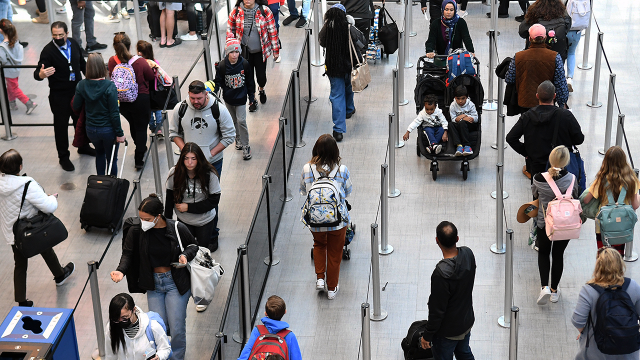
Do people who travel think differently about the world? A new Pew Research Center survey suggests they do.
Americans who have traveled internationally are more interested in and knowledgeable about foreign affairs, feel closer to others around the world, and favor a more active foreign policy, according to the survey of 3,576 U.S. adults conducted in spring 2023. We also surveyed people in 23 other countries about their international travel habits.
This analysis examines international travel with a focus on Americans’ travel, including which Americans travel abroad and how their interest in the world and views of international affairs differ from others.
For this analysis, we surveyed 3,576 U.S. adults from March 20 to March 26, 2023; 3,581 U.S. adults from March 21 to March 27, 2022; and 10,606 U.S. adults from June 14 to June 27, 2021. Everyone who took part in these surveys is a member of the Center’s American Trends Panel (ATP), an online survey panel that is recruited through national, random sampling of residential addresses. This way nearly all U.S. adults have a chance of selection. The survey is weighted to be representative of the U.S. adult population by gender, race, ethnicity, partisan affiliation, education and other categories. Read more about the ATP’s methodology .
For non-U.S. data, this report draws on nationally representative surveys of 27,285 adults conducted from Feb. 20 to May 22, 2023. All surveys were conducted over the phone with adults in Canada, France, Germany, Greece, Italy, Japan, the Netherlands, South Korea, Spain, Sweden and the United Kingdom. Surveys were conducted face-to-face in Hungary, Poland, India, Indonesia, Israel, Kenya, Nigeria, South Africa, Argentina, Brazil and Mexico. In Australia, we used a mixed-mode probability-based online panel.
Here are the June 2021 survey questions and responses used in this analysis. Those for the March 2022 survey may be found here , as well as those for the March 2023 survey .
How many Americans have traveled internationally?
Roughly three-quarters of Americans (76%) have visited at least one other country, including 26% who have been to five or more. About a quarter (23%) have not traveled internationally, though most in this group say they would if they had the opportunity.
Related: How experience with international travel varies across 24 countries
To analyze how Americans’ travel experiences relate to their attitudes on other questions, we placed people into three categories:
- Globe-trotters have traveled to at least five other countries. About a quarter of the U.S. public (26%) falls into this category.
- Casual travelers have traveled to between one and four other countries. Half of Americans fall into this category.
- Nontravelers have never left the United States. This category includes 23% of Americans.
Compared with Americans, people in many European nations are more likely to have traveled to five or more other countries. For instance, 88% of Swedes have done so.
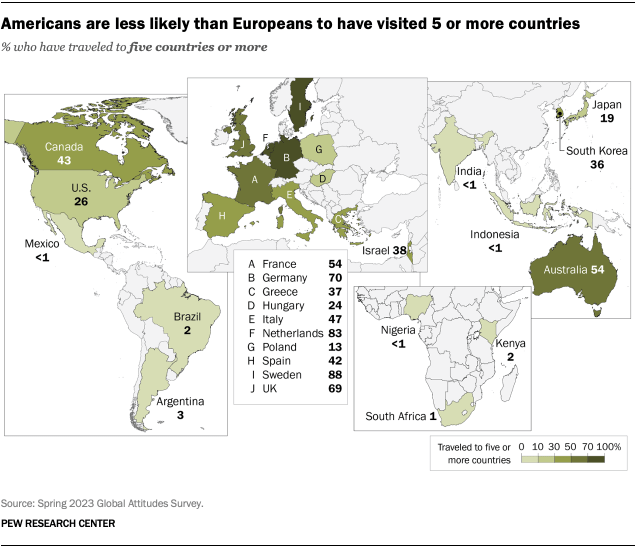
However, international travel is much less common in many middle-income nations. It is strongly correlated with a nation’s gross domestic product per capita. (For more on international travel and views about global engagement, read “Attitudes on an Interconnected World.” )
Who travels internationally?

Perhaps unsurprisingly, older people are more likely than younger people to have traveled internationally. Americans ages 65 and older are more than twice as likely as adults under 30 to fall into our globe-trotter category (37% vs. 17%).
Income is even more strongly related to travel than age. Two-thirds of upper-income Americans have traveled to at least five countries, compared with 9% of Americans with lower incomes.
Similarly, Americans with a postgraduate degree are far more likely to be globe-trotters than those with a high school education or less (59% vs. 10%).
Residents of suburban and urban areas generally have more international travel experience than people who live in rural areas.
There are no significant partisan differences when it comes to international travel: 26% of Democrats and Democratic-leaning independents qualify as globe-trotters, as do 28% of Republicans and GOP leaners.
Do travelers know more about the world?
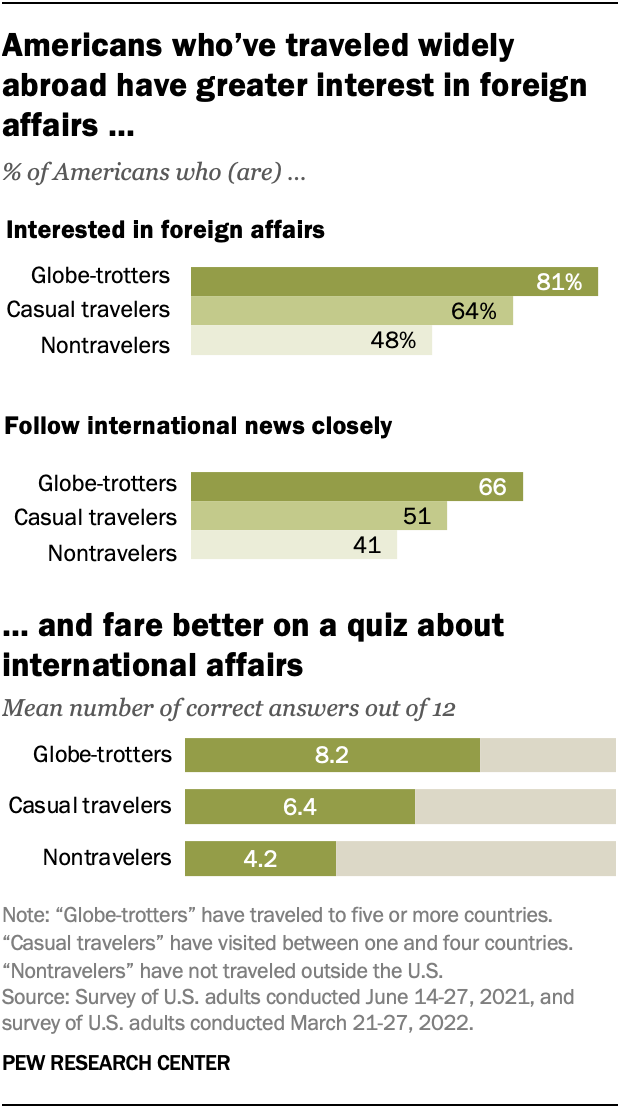
Globe-trotters are especially likely to say they are interested in foreign affairs and follow international news. Casual travelers, in turn, are more likely than nontravelers to do so.
Globe-trotters are also the most knowledgeable about international affairs. In 2022, we conducted an international affairs quiz , asking Americans 12 questions related to international news. On average, globe-trotters got 8.2 of the 12 questions correct, compared with 6.4 for casual travelers and 4.2 for nontravelers.
Is international travel related to views of global engagement?

International travel experience is also linked to Americans’ views about international affairs and their feelings of connection to other people around the world.
When asked which comes closest to their view, 57% of globe-trotters say the U.S. should be active in world affairs, while 43% say the U.S. should pay less attention to problems in other countries and concentrate on problems at home. In contrast, most casual travelers and nontravelers say the U.S. should focus on problems at home.
In all three groups, at least half of respondents say that when the U.S. is making foreign policy, it should take other countries’ interests into account – even if that means making compromises. But globe-trotters are especially likely to hold that view.
Globe-trotters are also particularly likely to say they feel close to people around the world, with 42% saying so. By comparison, 34% of casual travelers and 30% of nontravelers say this.
- International Affairs

Richard Wike is director of global attitudes research at Pew Research Center

Janell Fetterolf is a senior researcher focusing on global attitudes at Pew Research Center
Fewer Americans view the United Nations favorably than in 2023
What are americans’ top foreign policy priorities, rising numbers of americans say jews and muslims face a lot of discrimination, younger americans stand out in their views of the israel-hamas war, how u.s. muslims are experiencing the israel-hamas war, most popular.
1615 L St. NW, Suite 800 Washington, DC 20036 USA (+1) 202-419-4300 | Main (+1) 202-857-8562 | Fax (+1) 202-419-4372 | Media Inquiries
Research Topics
- Age & Generations
- Coronavirus (COVID-19)
- Economy & Work
- Family & Relationships
- Gender & LGBTQ
- Immigration & Migration
- Internet & Technology
- Methodological Research
- News Habits & Media
- Non-U.S. Governments
- Other Topics
- Politics & Policy
- Race & Ethnicity
- Email Newsletters
ABOUT PEW RESEARCH CENTER Pew Research Center is a nonpartisan fact tank that informs the public about the issues, attitudes and trends shaping the world. It conducts public opinion polling, demographic research, media content analysis and other empirical social science research. Pew Research Center does not take policy positions. It is a subsidiary of The Pew Charitable Trusts .
Copyright 2024 Pew Research Center
Terms & Conditions
Privacy Policy
Cookie Settings
Reprints, Permissions & Use Policy
Mobile Menu Overlay
The White House 1600 Pennsylvania Ave NW Washington, DC 20500
FACT SHEET: Biden- Harris Administration Announces Rules to Deliver Automatic Refunds and Protect Consumers from Surprise Junk Fees in Air Travel
Newly finalized rules will mandate automatic, cash refunds for cancelled or significantly delayed flights and save consumers over half a billion dollars every year in airline fees
WASHINGTON – Building on a historic record of expanding consumer protections and standing up for airline passengers, the Biden-Harris Administration announced final rules that require airlines to provide automatic cash refunds to passengers when owed and protect consumers from costly surprise airline fees. These rules will significantly expand consumer protections in air travel, provide passengers an easier pathway to refunds when owed, and save consumers over half a billion dollars every year in hidden and surprise junk fees. The rules are part of the Biden-Harris Administration’s work to lower costs for consumers and take on corporate rip-offs. President Biden signed an Executive Order on Promoting Competition in 2021 that encouraged DOT to take steps to promote fairer, more transparent, and competitive markets. Requiring Automatic Cash Airline Refunds
The first rule requires airlines to promptly provide passengers with automatic cash refunds when owed because their flights are cancelled or significantly changed, their checked bags are significantly delayed, or the ancillary services, like Wi-Fi, they purchased are not provided. Without this rule, consumers have to navigate a patchwork of cumbersome processes to request and receive a refund — searching through airline websites to figure out how to make the request, filling out extra “digital paperwork,” or at times waiting for hours on the phone. Passengers would also receive a travel credit or voucher by default from many airlines instead of getting their money back, so they could not use their refund to rebook on another airline when their flight was changed or cancelled without navigating a cumbersome request process. DOT’s rule makes it simple and straightforward for passengers to receive the money they are owed. The final rule requires refunds to be:
- Automatic: Airlines must automatically issue refunds without passengers having to explicitly request them or jump through hoops.
- Prompt: Airlines and ticket agents must promptly issue refunds within seven business days of refunds becoming due for credit card purchases and 20 calendar days for other payment methods.
- Cash or original form of payment: Airlines and ticket agents must provide refunds in cash or whatever original payment method the individual used to make the purchase, such as credit card or airline miles. Airlines may not substitute vouchers, travel credits, or other forms of compensation unless the passenger affirmatively chooses to accept alternative compensation.
- Full amount: Airlines and ticket agents must provide full refunds of the ticket purchase price, minus the value of any portion of transportation already used. The refunds must include all government-imposed taxes and fees and airline-imposed fees.
Protecting Against Surprise Airline Junk Fees
Secondly, DOT is requiring airlines and ticket agents to tell consumers upfront what fees they charge for checked bags, a carry-on bag, for changing a reservation, or cancelling a reservation. This ensures that consumers can avoid surprise fees when they purchase tickets from airlines or ticket agents, including both brick-and-mortar travel agencies or online travel agencies. The rule will help consumers avoid unneeded or unexpected charges that can increase quickly and add significant cost to what may, at first, look like a cheap ticket. Extra fees, like checked baggage and change fees, have been a growing source of revenue for airlines, while also becoming more complex and confusing for passengers over time. In total, thanks to the final rule, consumers are expected to save over half a billion dollars every year that they are currently overpaying in airline fees. DOT’s rule ensures that consumers have the information they need to better understand the true costs of air travel. Under the final rule, airlines are required to:
- Disclose baggage, change, and cancellation fees upfront : Each fee must be disclosed the first time that fare and schedule information is provided on the airline’s online platform — and cannot be displayed through a hyperlink.
- Explain fee policies before ticket purchase: For each type of baggage, airlines and ticket agents must spell out the weight and dimension limitations that they impose. They must also describe any prohibitions or restrictions on changing or cancelling a flight, along with policies related to differences in fare when switching to a more or less expensive flight.
- Share fee information with third parties : An airline must provide useable, current, and accurate information regarding its baggage, change, and cancellation fees and policies to any company that is required to disclose them to consumers and receives fare, schedule, and availability information from that airline.
- Inform consumers that seats are guaranteed: When offering an advance seat assignment for a fee, airlines and ticket agents must let consumers know that purchasing a seat is not necessary to travel, so consumers can avoid paying unwanted seat selection fees.
- Provide both standard and passenger-specific fee information: Consumers can choose to view passenger-specific fee information based on their participation in the airline’s rewards program, their military status, or the credit card that they use — or they can decide to stay anonymous and get the standard fee information.
- End discount bait-and-switch tactics: The final rule puts an end to the bait-and-switch tactics some airlines use to disguise the true cost of discounted flights. It prohibits airlines from advertising a promotional discount off a low base fare that does not include all mandatory carrier-imposed fees.
DOT’s Historic Record of Consumer Protection Under the Biden-Harris Administration Both of these actions were suggested for consideration by the DOT in the Executive Order on Promoting Competition and build on historic steps the Biden-Harris Administration has already taken to expand consumer protections, promote competition, and protect air travelers. Under the Biden-Harris Administration, DOT has advanced the largest expansion of airline passenger rights, issued the biggest fines against airlines for failing consumers, and returned more money to passengers in refunds and reimbursements than ever before in the Department’s history.
- DOT launched the flightrights.gov dashboard, and now all 10 major U.S. airlines guarantee free rebooking and meals, and nine guarantee hotel accommodations when an airline issue causes a significant delay or cancellation. These are new commitments the airlines added to their customer service plans that DOT can legally ensure they adhere to and are displayed on flightrights.gov.
- Since President Biden took office, DOT has helped return more than $3 billion in refunds and reimbursements owed to airline passengers – including over $600 million to passengers affected by the Southwest Airlines holiday meltdown in 2022.
- DOT has issued over $164 million in penalties against airlines for consumer protection violations. Between 1996 and 2020, DOT collectively issued less than $71 million in penalties against airlines for consumer protection violations.
- DOT recently launched a new partnership with a bipartisan group of state attorneys general to fast-track the review of consumer complaints, hold airlines accountable, and protect the rights of the traveling public.
- In 2023, the flight cancellation rate in the U.S. was a record low at under 1.2% — the lowest rate of flight cancellations in over 10 years despite a record amount of air travel
- DOT is undertaking its first ever industry-wide review of airline privacy practices and its first review of airline loyalty programs
In addition to finalizing the rules to require automatic refunds and protect consumers from surprise fees, DOT is also pursuing rulemakings that would:
- Propose to ban family seating junk fees and guarantee that parents can sit with their children for no extra charge when they fly. Before President Biden and Secretary Buttigieg pressed airlines last year, no airline committed to guaranteeing fee-free family seating. Now, four airlines guarantee fee-free family seating, as the Department is working on its family seating junk fee ban proposal.
- Propose to make passenger compensation and amenities mandatory so that travelers are taken care of when airlines cause flight delays or cancellations.
- Expand the rights for passengers who use wheelchairs and ensure that they can travel safely and with dignity . The comment period on this proposed rule closes on May 13, 2024.
Travelers can learn more about their protections when they fly at FlightRights.gov . Consumers may file an airline complaint with the Department here .
Stay Connected
We'll be in touch with the latest information on how President Biden and his administration are working for the American people, as well as ways you can get involved and help our country build back better.
Opt in to send and receive text messages from President Biden.

IMAGES
VIDEO
COMMENTS
A tale of two variants. What to Know. When it comes to spelling the forms of the verb travel, traveled and traveling are more common in the U.S., and travelled and travelling are dominant everywhere else. Spelling is typically clear-cut in modern English: forty unfailingly betrays four; the sweet treat after dinner is spelled dessert, not desert.
Traveled with one "l" is the more popular spelling version in America. This is likely thanks in part to Noah Webster, the Webster of Merriam-Webster Dictionary, according to Grammarly .
Traveled is the correct American English spelling.This English variant follows a single L to simplify English words.Other examples of simplified American spellings include humor instead of humour and annex instead of annexe.. Noah Webster of Webster's Dictionary is a famous person who advocated for traveled instead of travelled.So if you're American writing for an American audience, let ...
Travelling (with two Ls) is the preferred spelling in British English and is used much more frequently than is traveling. The graph below shows the use of travelling vs. traveling (as a percentage of all words used) in British English books, journals, and magazines from 1800 to 2008.
The difference between traveled vs. travelled is actually geographical. So, where is one more common than the other? Learn more with this simple guide. ... American, work for an American company or go to a school that teaches American English, then you should always use the traveled spelling.
Traveling or travelling? The verb travel, which is to "go from one place to another, especially over a long distance", uses different spellings based on UK English and US English: British English spells " travelling " with the double "L". American English spells " traveling " with one "L". The same goes with other verb forms ...
Travelling and traveling are both correct spellings of the present participle and gerund of the verb "travel," which means "go from one place to another." The spelling depends on whether you use British English or American English. In British English, "travelling" with a double "l" is the most common.; In American English, "traveling" with one "l" is standard.
Grammar Tips. "Traveling" and "travelling" are both correct. The former is the preferred spelling in American English; the latter is the British spelling. In many places around the world, such as Australia and New Zealand, traditional British English has a stronger influence. As a result, people living in current and former British ...
The spelling tends to vary based on whether you're writing UK or US English: In UK English, "travelling" (double "l") is standard. In US English, "traveling" (one "l") is correct. Examples: Travelling and traveling in a sentence. Ava doesn't like travelling/traveling by boat because she gets seasick. If you're travelling ...
In American English, "traveled" is the accepted convention. It's spelled with one 'l'. We use this form not only in the past tense of the verb "travel" ( He traveled last summer) but also in the adjective form ( She is a well-traveled person ). British English, on the other hand, favors the double 'l' - "travelled.".
The answer is actually pretty simple. Read on to find out. In short, 'travelling' is the British English spelling, and 'traveling' is the American English spelling. Table of Contents. The Difference Between 'Travelling' or 'Traveling'. Remember the Difference - 'Traveling' or 'Travelling'?
The spelling tends to vary based on whether you're writing UK or US English: In UK English, 'travelling' (double 'l') is standard. ... Travelled and traveled are the past forms of the verb 'travel'. The same spelling distinction applies to these past forms and to the nouns traveller and traveler:
The difference lies in where you are or who your audience is. In the United States, people prefer to use one 'l', making it "traveling". However, in countries like the United Kingdom, Canada, and Australia, adding an extra 'l' is the norm, so it's "travelling". This variation is because of different spelling rules in American ...
Canada is one of the Commonwealth Countries: more than 50 nations that once were part of the British Empire. Hence, Canada uses the double - L rule, and if you're in Quebec City, the correct spelling is: Travelling. Other Commonwealth Countries that use the "two L" spelling (Travelled, Traveller, and so on) include Australia, South ...
Travelling or traveling: Travelling and traveling are the two spellings of the same word. Both of these spellings are acceptable and exchangeable in English language but their usage differ according to the part of the world they are spoken in. In American English, the inflected forms of travel take one l—so, traveled, traveling, traveler, etc ...
That said, "traveling" is the preferred way to spell the word in the United States. You will find this correct spelling in the Merriam-Webster dictionary. However, if your readers are located in the United Kingdom in the Commonwealth, the term is spelled "travelling.". The subtle distinction of one "L" versus two simply depends on ...
Remember the double "L": The British spelling of "travelling" has a double "L," while the American spelling of "traveling" has only one "L." This is an easy way to remember which spelling to use. Use consistent spelling: If you are writing a document or article, make sure you use the same spelling throughout. This will help ...
Firstly, the spelling of both words is correct and they are both the same word! However, there are a couple of things to keep in mind when deciding which one to use. The first difference between traveling and travelling is geographical location. American English typically uses "traveling" while British English opts for "travelling".
8. There is no hard-and-fast rule that is universally applied, but in general, many and perhaps most writers of American English use just one single L there. Other varieties, including British, Irish, Australian, New Zealand, South African, and (usually (but not always)) Canadian, almost invariably use two Ls there.
The spelling of "travelled" and "traveled" can also depend on the region where the writer is from or the audience they are writing for. For example, if a British writer is writing for an American audience, they may choose to use the American spelling "traveled" to avoid confusion. Similarly, an American writer may choose to use the ...
The meaning of TRAVEL is to go on or as if on a trip or tour : journey. How to use travel in a sentence. ... traveled or travelled; traveling or travelling ˈtra-və-liŋ . ... Noah Webster's Spelling Wins and Fails. Some of his biggest successes and defeats. 8 Ways to Get Away From It All.
Both forms are correct. Due to standardizing and simplifying American English spelling, which started with the Noah Webster's dictionary in 1828, traveling is widely used in the US. Correct British spelling is still travelling, with double l, according to the rule of doubling the last consonant of consonant-vowel-consonant combination at the ...
An iconic guild perk from Cataclysm is missing from the game, Have Group, Will Travel. Not to mention "Cash Flow" as well (Blizzard, just add a daily gold cap to this perk, but keep it in the game). I am a fan of the small retail systems they're adding such as account wide mounts/transmog, UI, etc. But keep the iconic Cataclysm spells and systems in the game! Mass summon is a fantastic ...
Said another way: A Boeing plane can be involved in an incident that has nothing to do with Boeing itself. "There is a pile-on fixation that happens in the broader media landscape," Ostrower ...
USA Today Crossword is a popular daily puzzle that tests the player's vocabulary, spelling, and general knowledge skills. The puzzle is available in print and digital format and is enjoyed by ...
A new Pew Research Center survey suggests they do. Americans who have traveled internationally are more interested in and knowledgeable about foreign affairs, feel closer to others around the world, and favor a more active foreign policy, according to the survey of 3,576 U.S. adults conducted in spring 2023. We also surveyed people in 23 other ...
Passengers would also receive a travel credit or voucher by default from many airlines instead of getting their money back, so they could not use their refund to rebook on another airline when ...
Date Posted: Monday, April 22nd, 2024 Delaware State Police arrested 55-year-old Jane Fencer of Townsend, Delaware, for making several fraudulent credit card purchases through her Middletown-based travel agency, Wanderlust Tours and Travel.. On January 26, 2024, troopers were dispatched to a report of multiple unauthorized credit card purchases made through Wanderlust Tours and Travel, located ...
<link rel="stylesheet" href="styles.c627106527bfdb1e.css">
Now an Austrian company wants to extend this opportunity for deep-dive delights to the world of superyachts, by building customized private submersibles that can descend 250 meters (820 feet ...